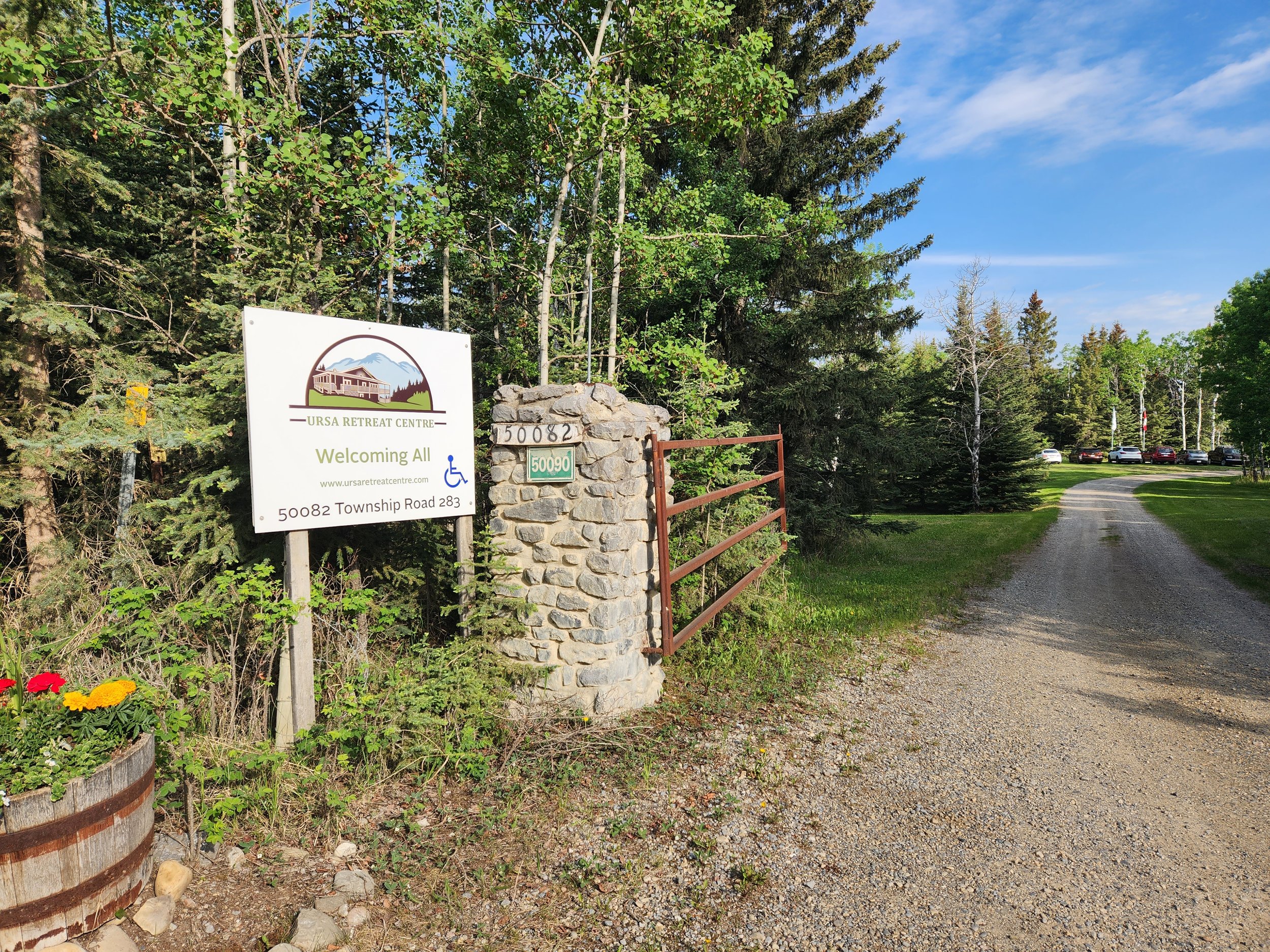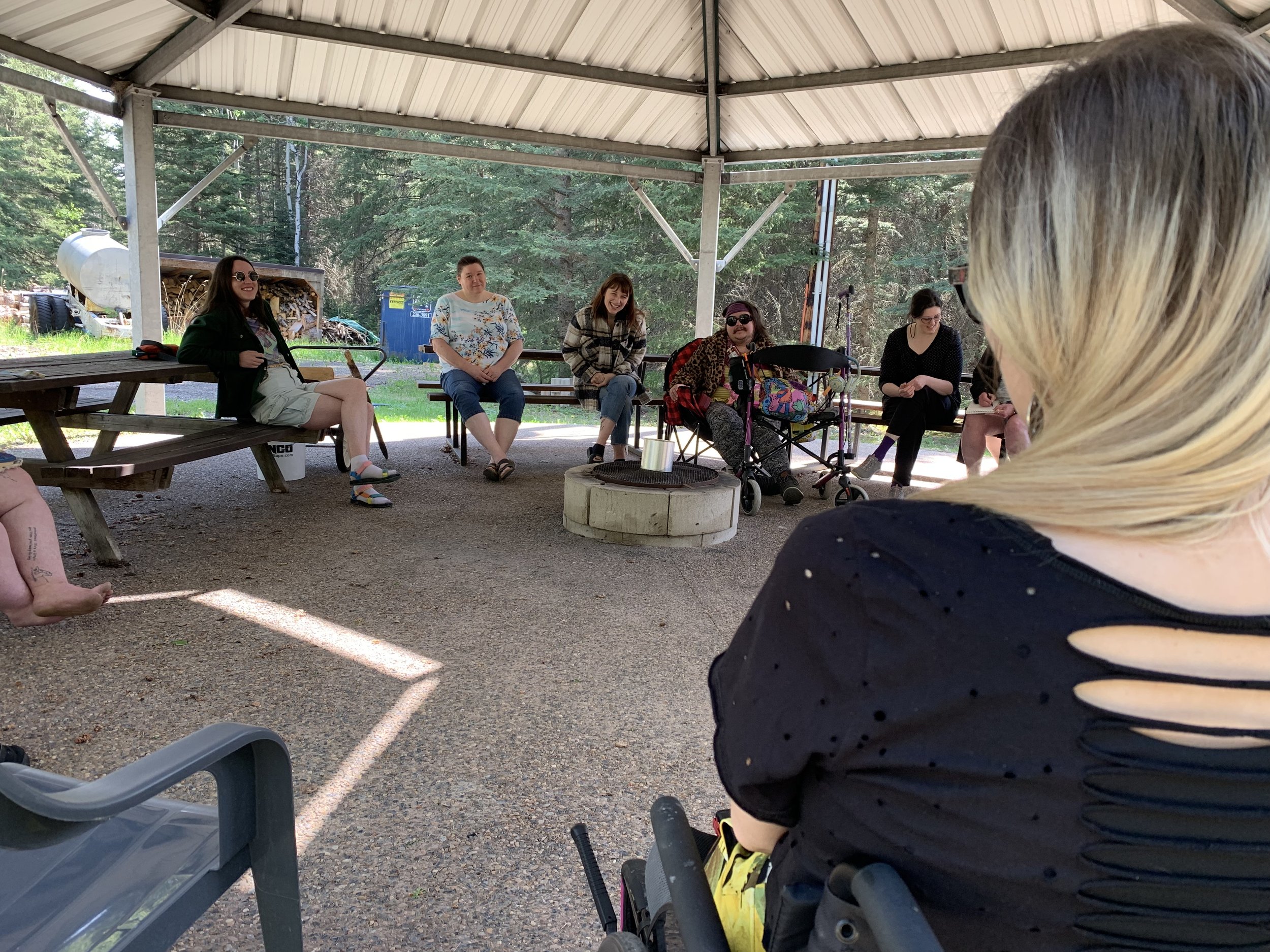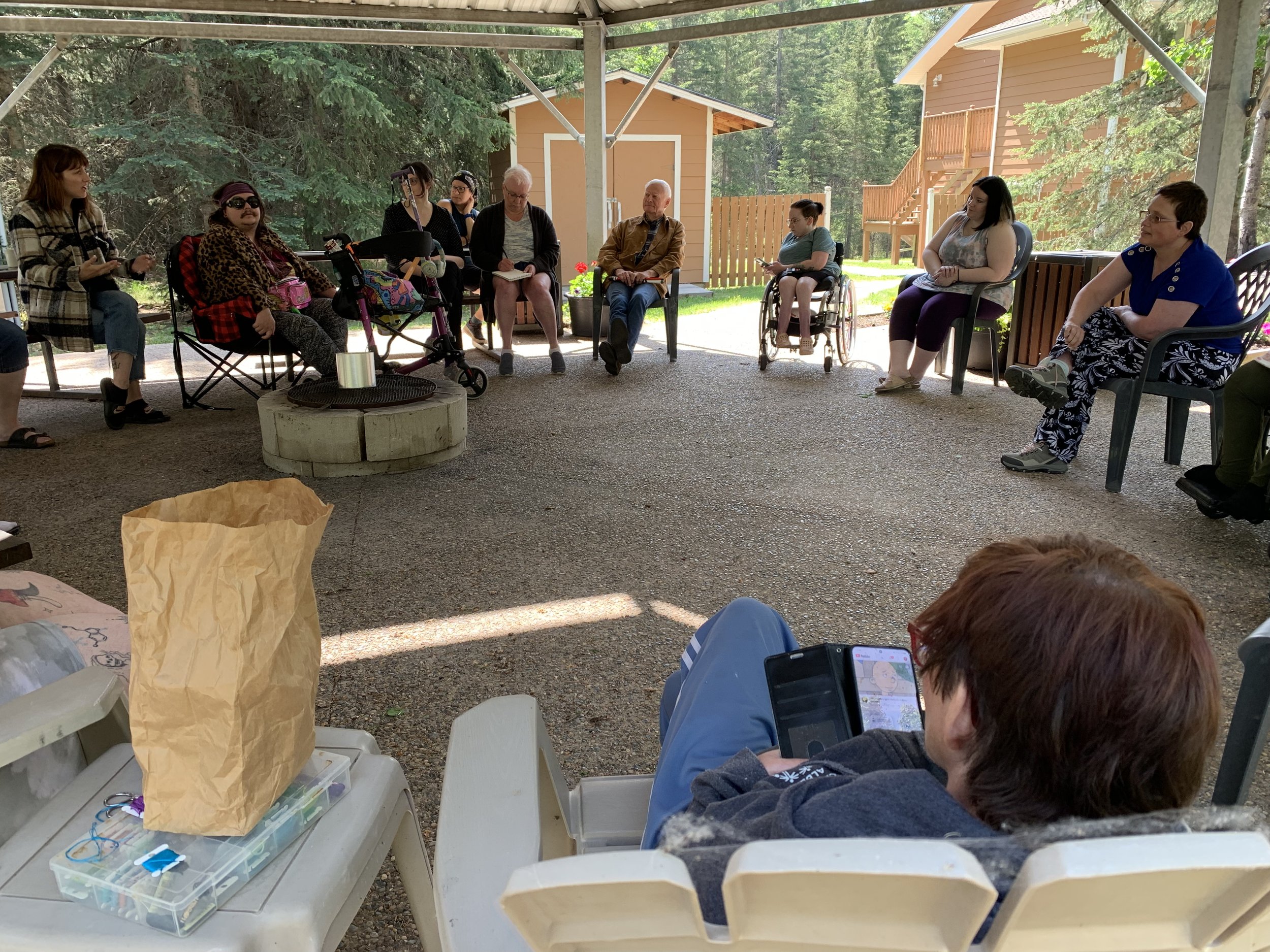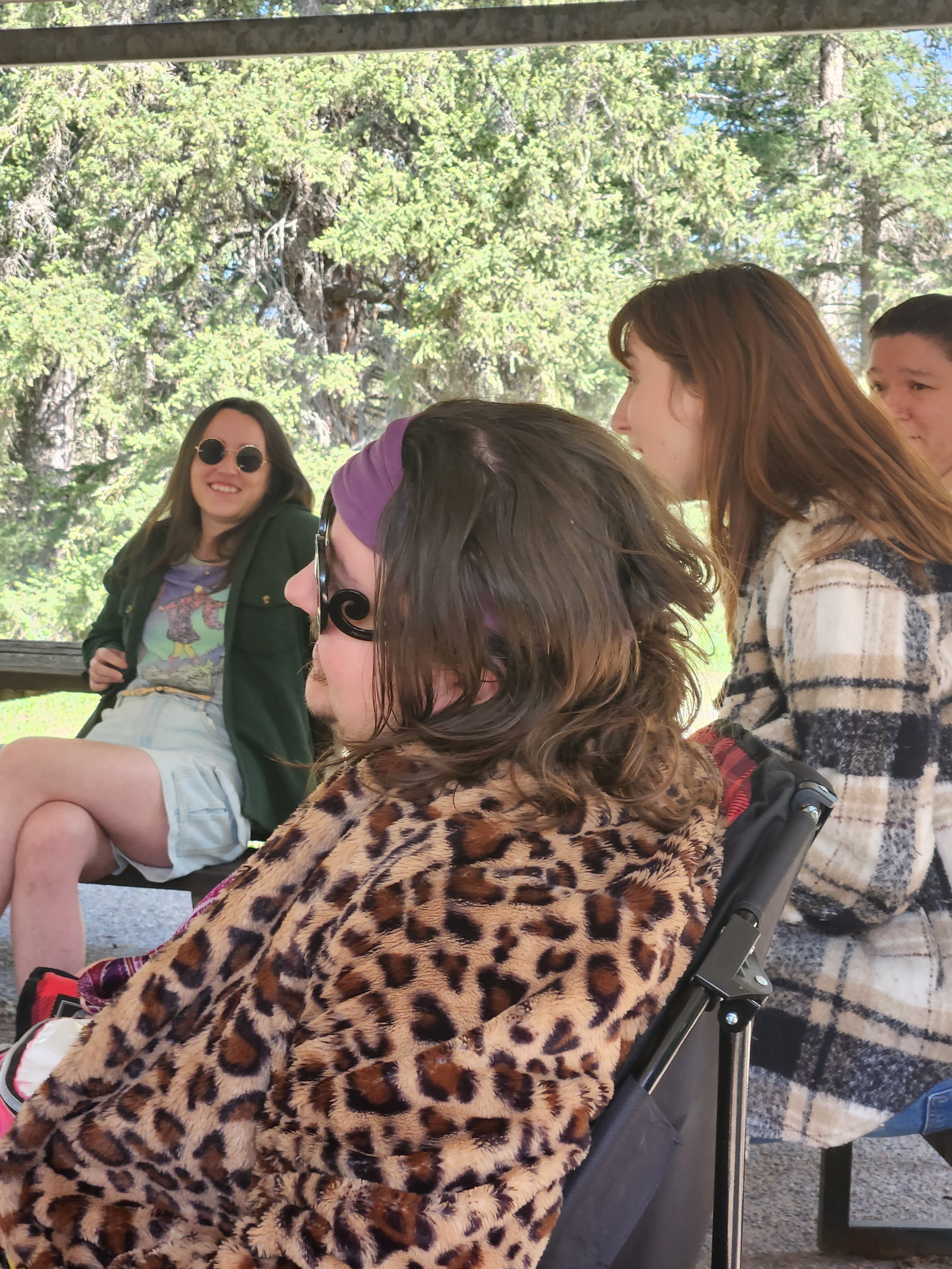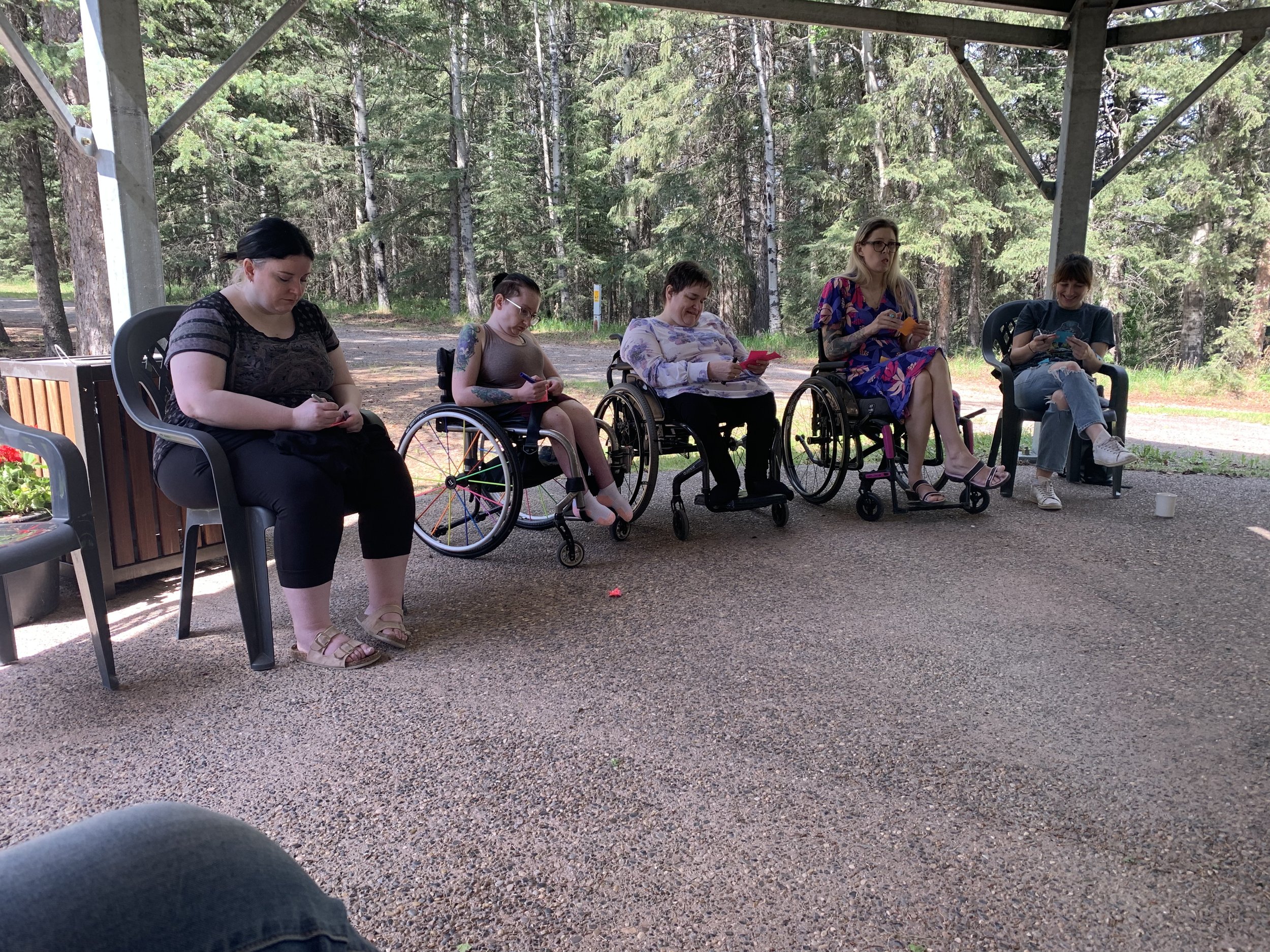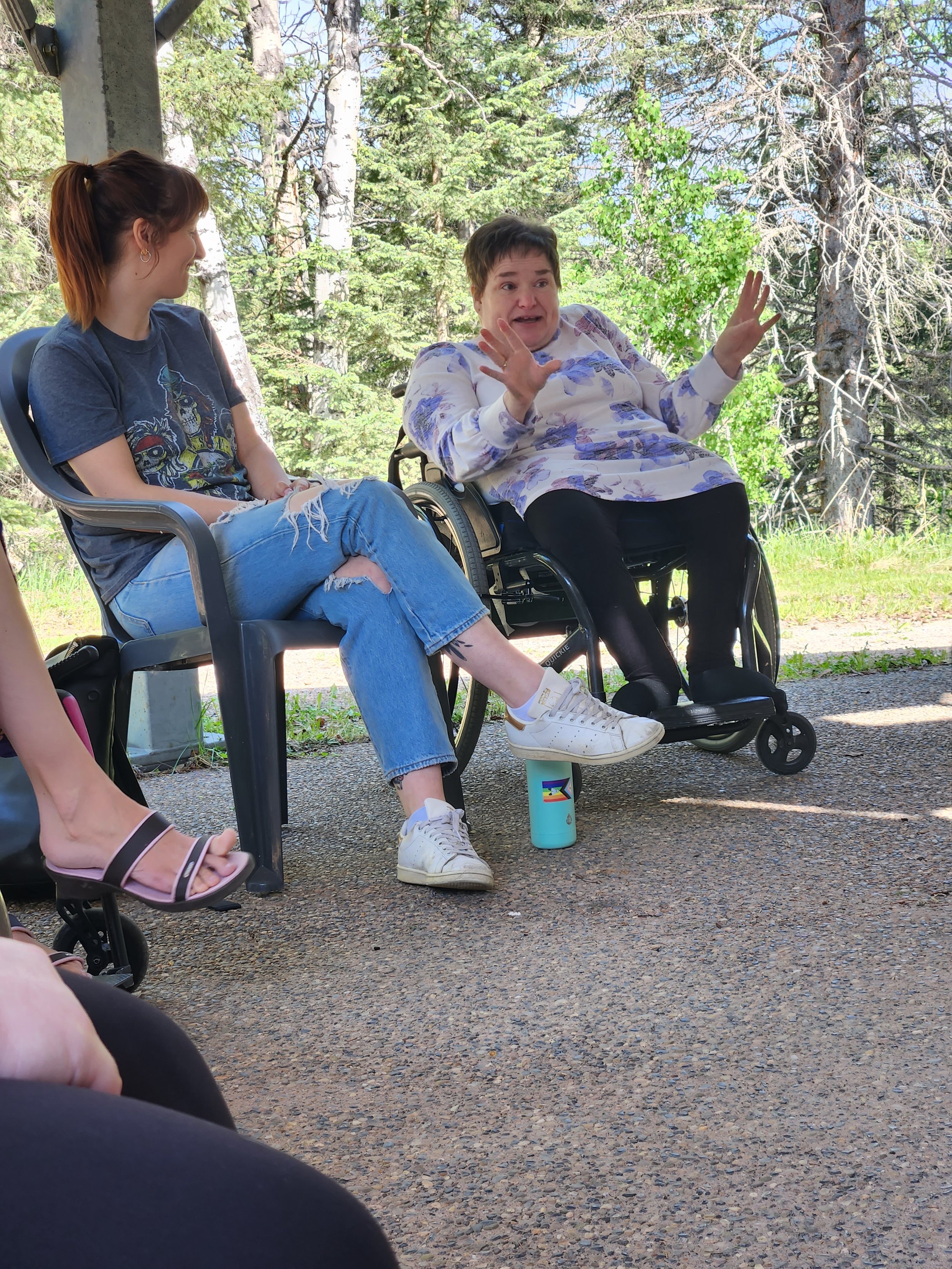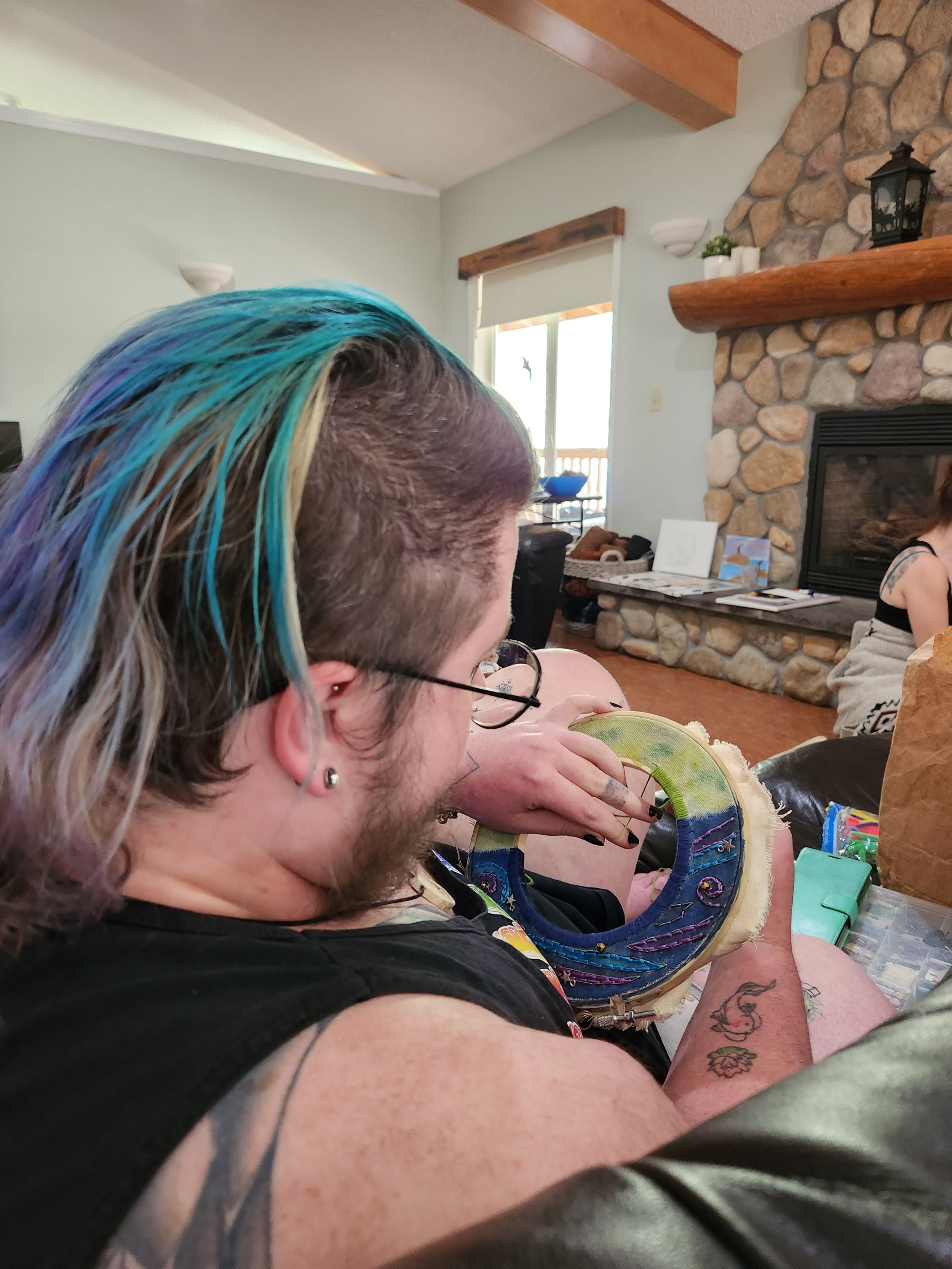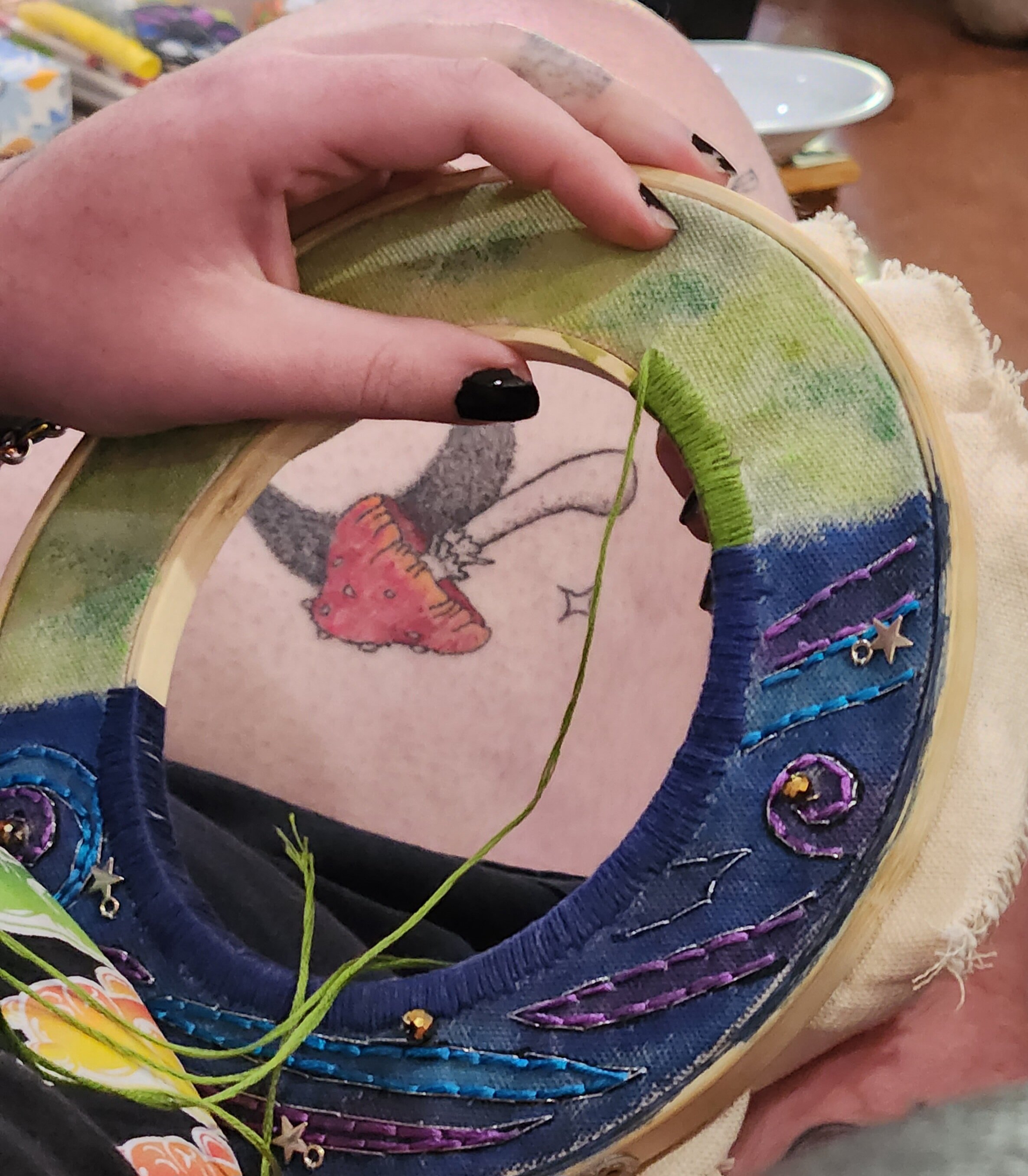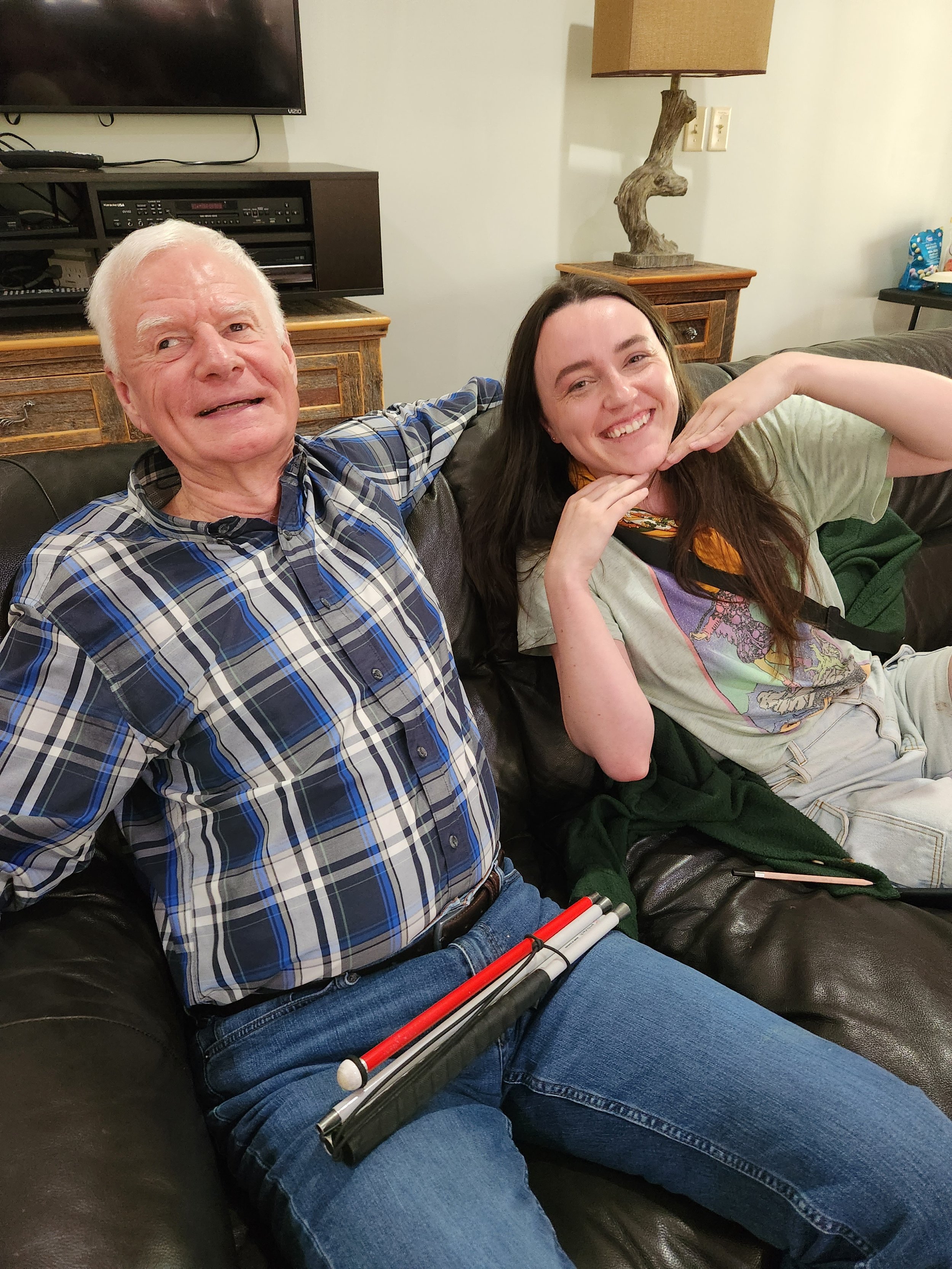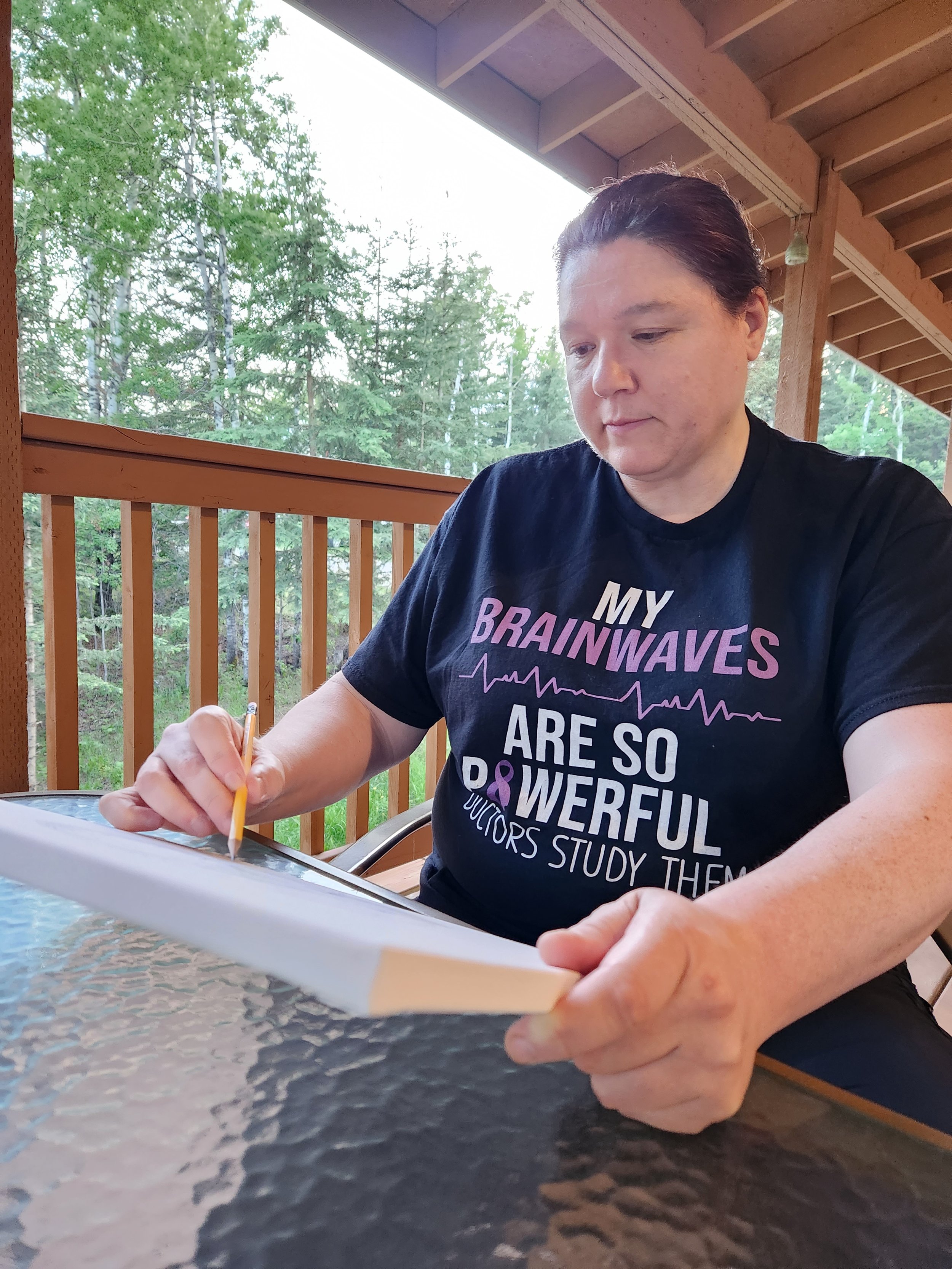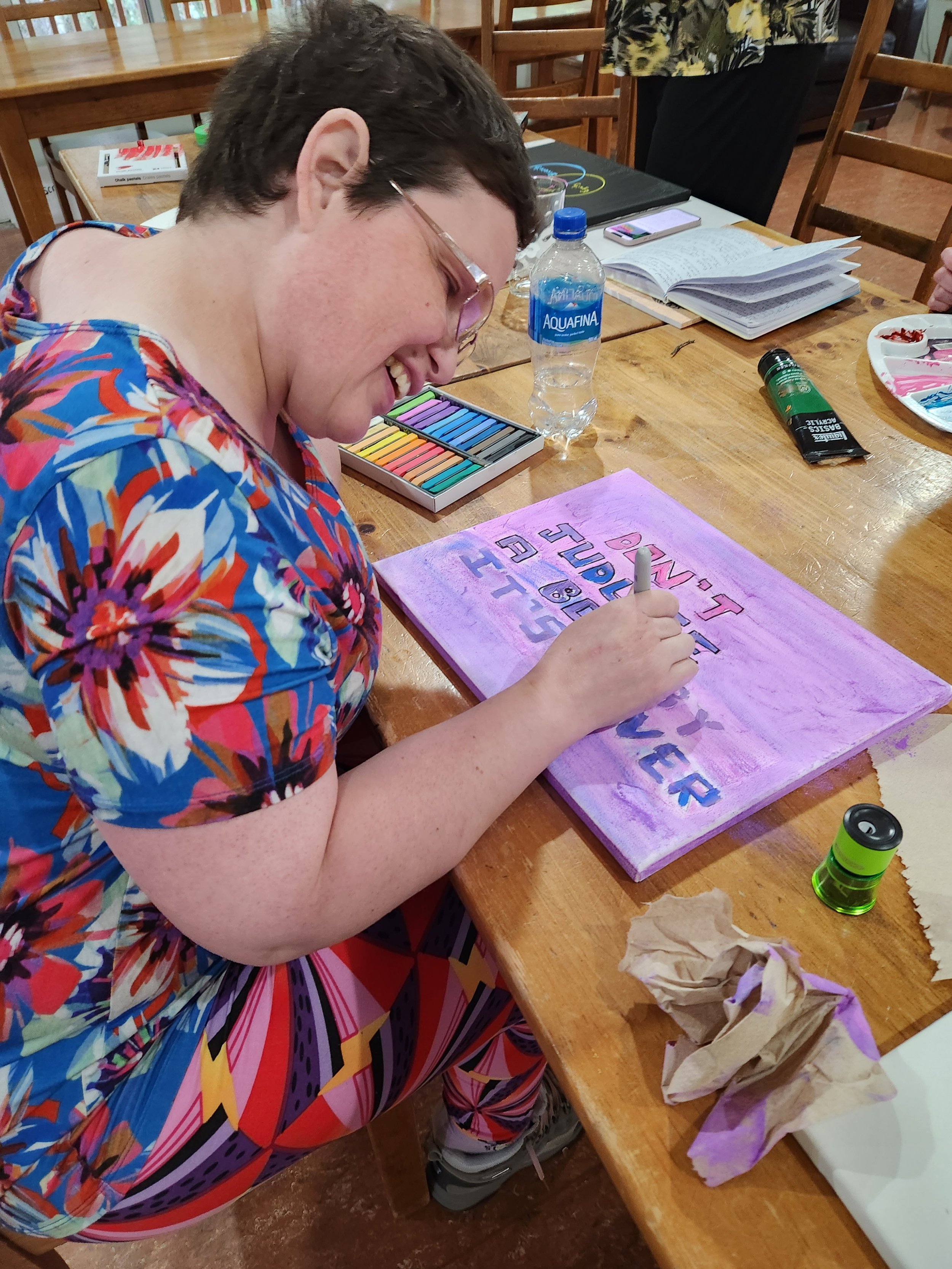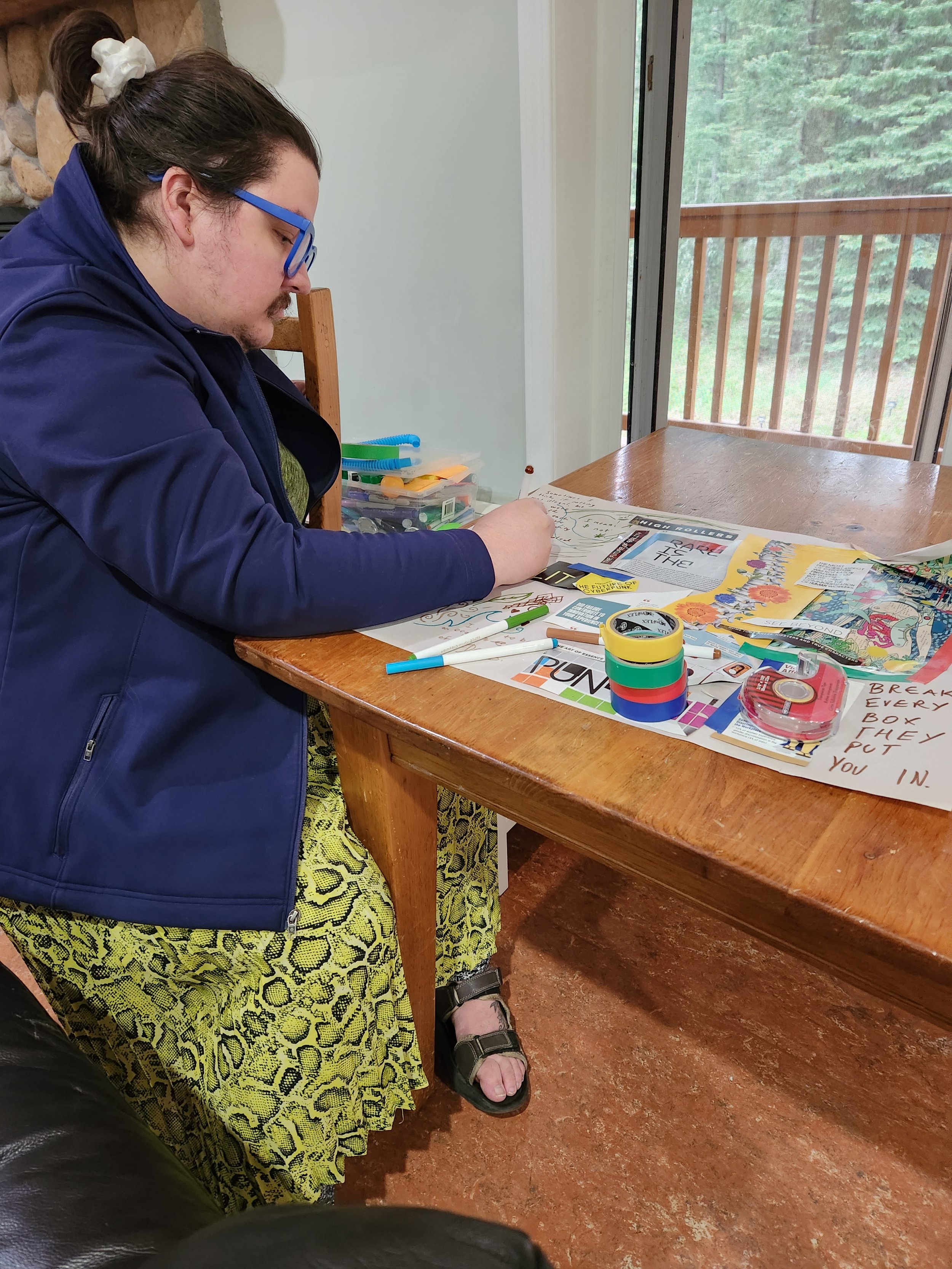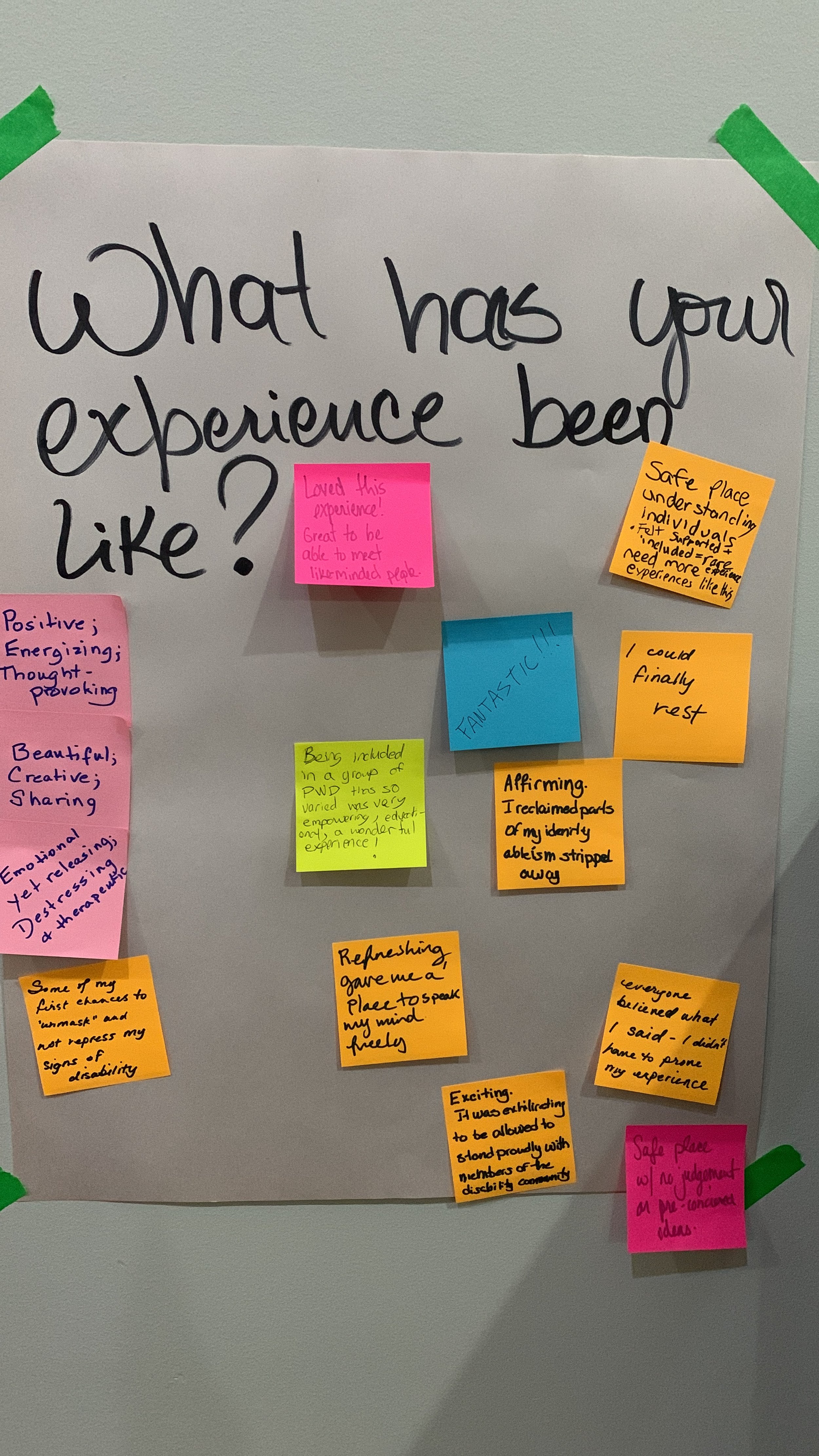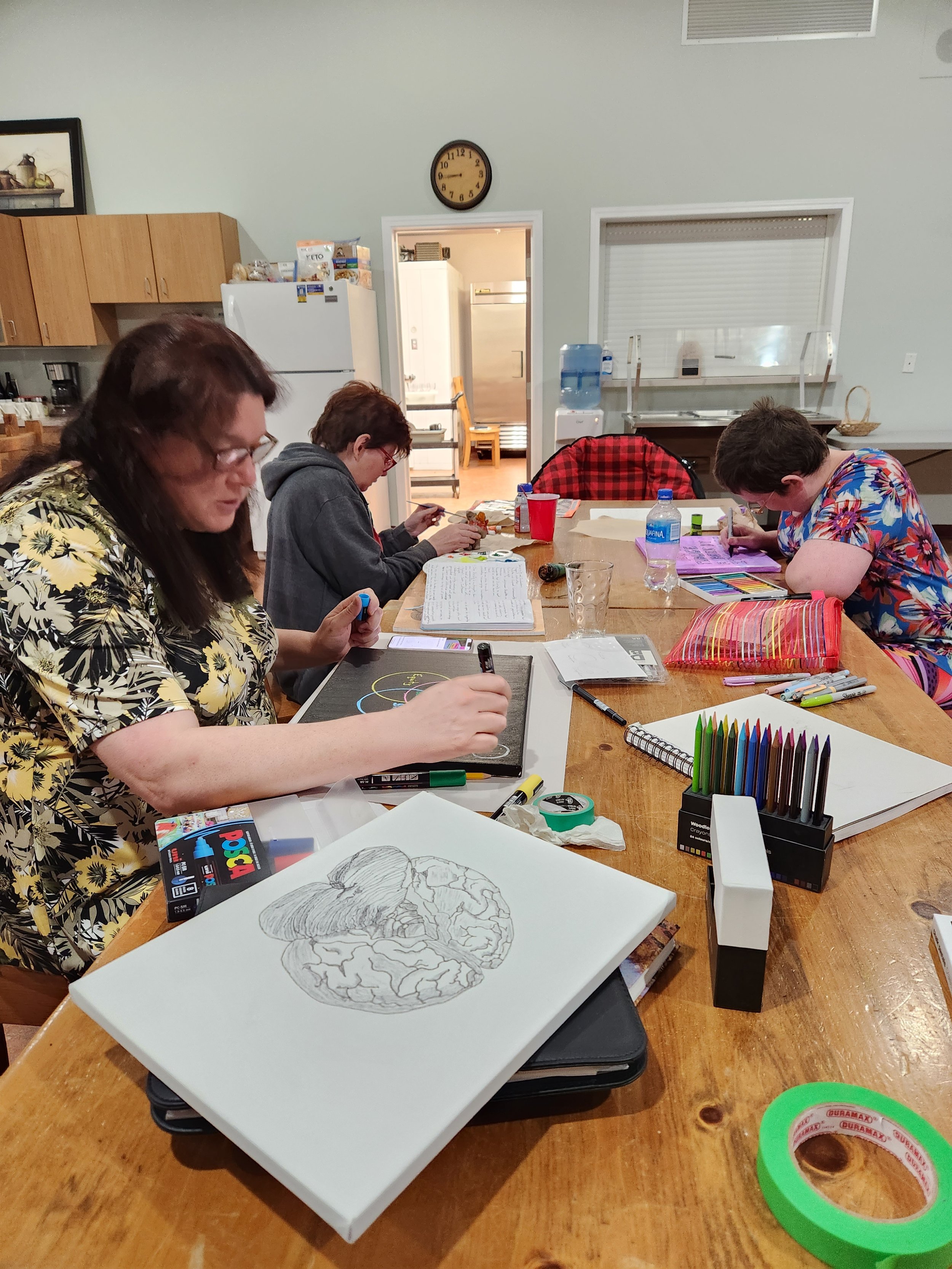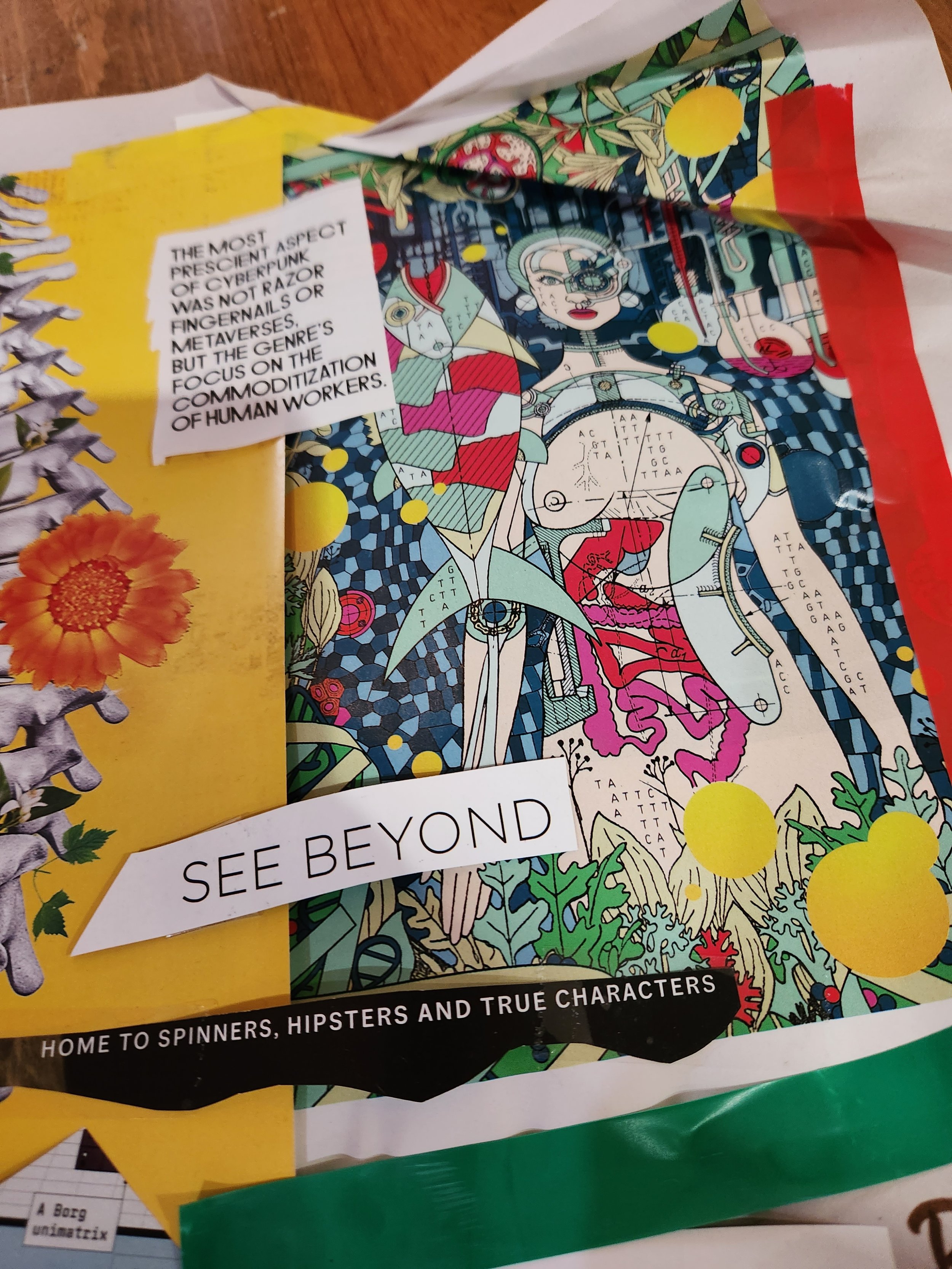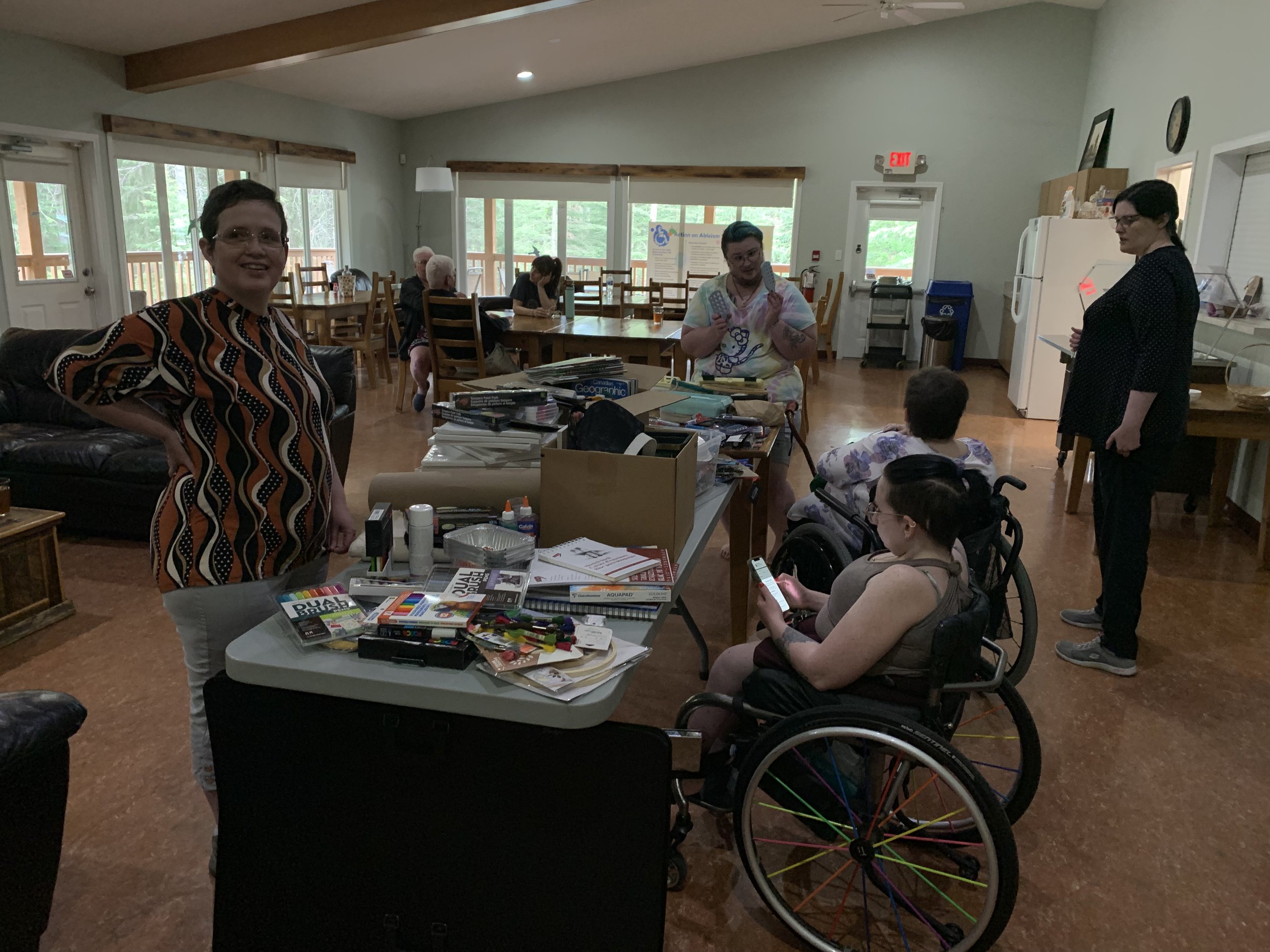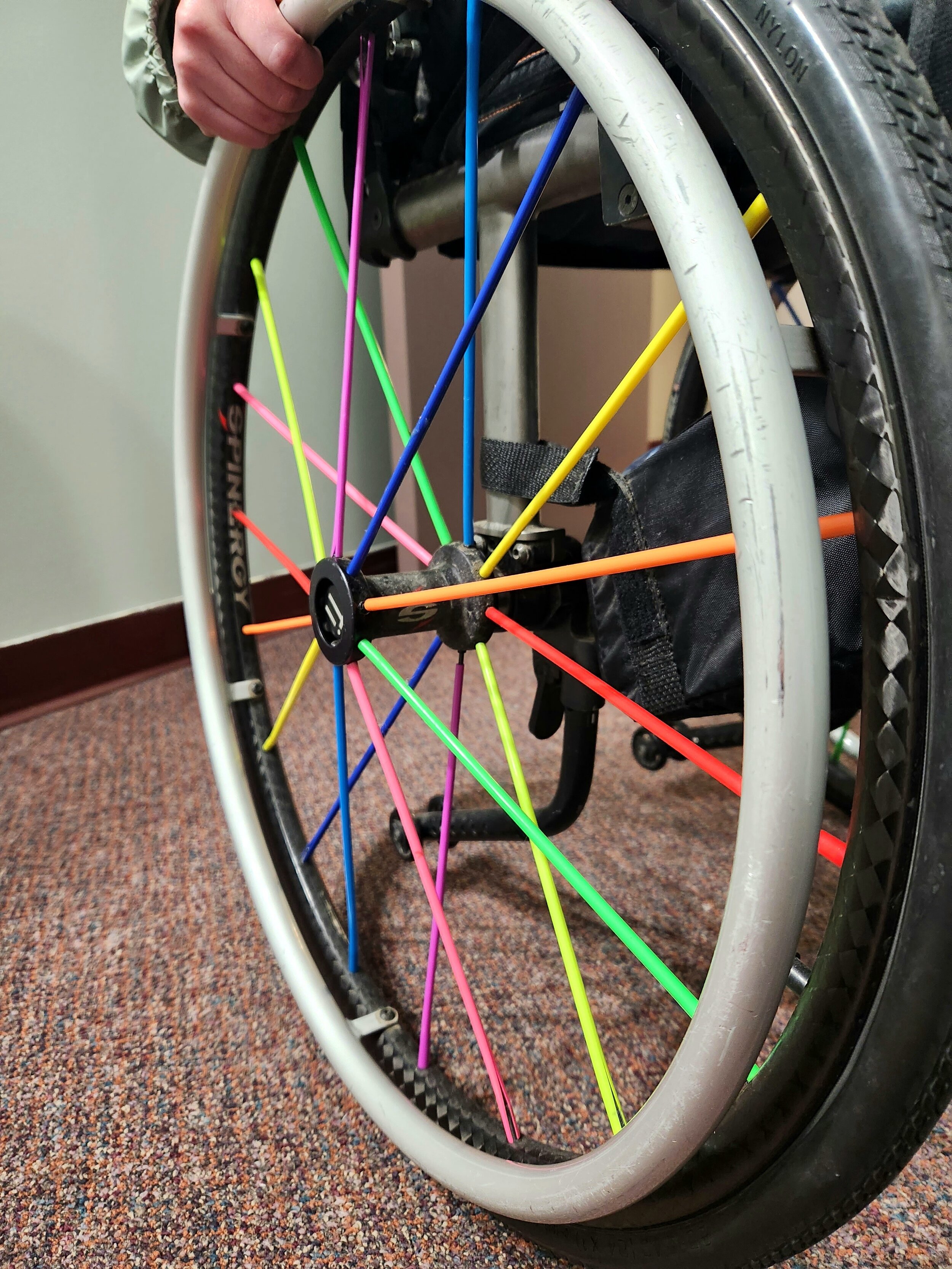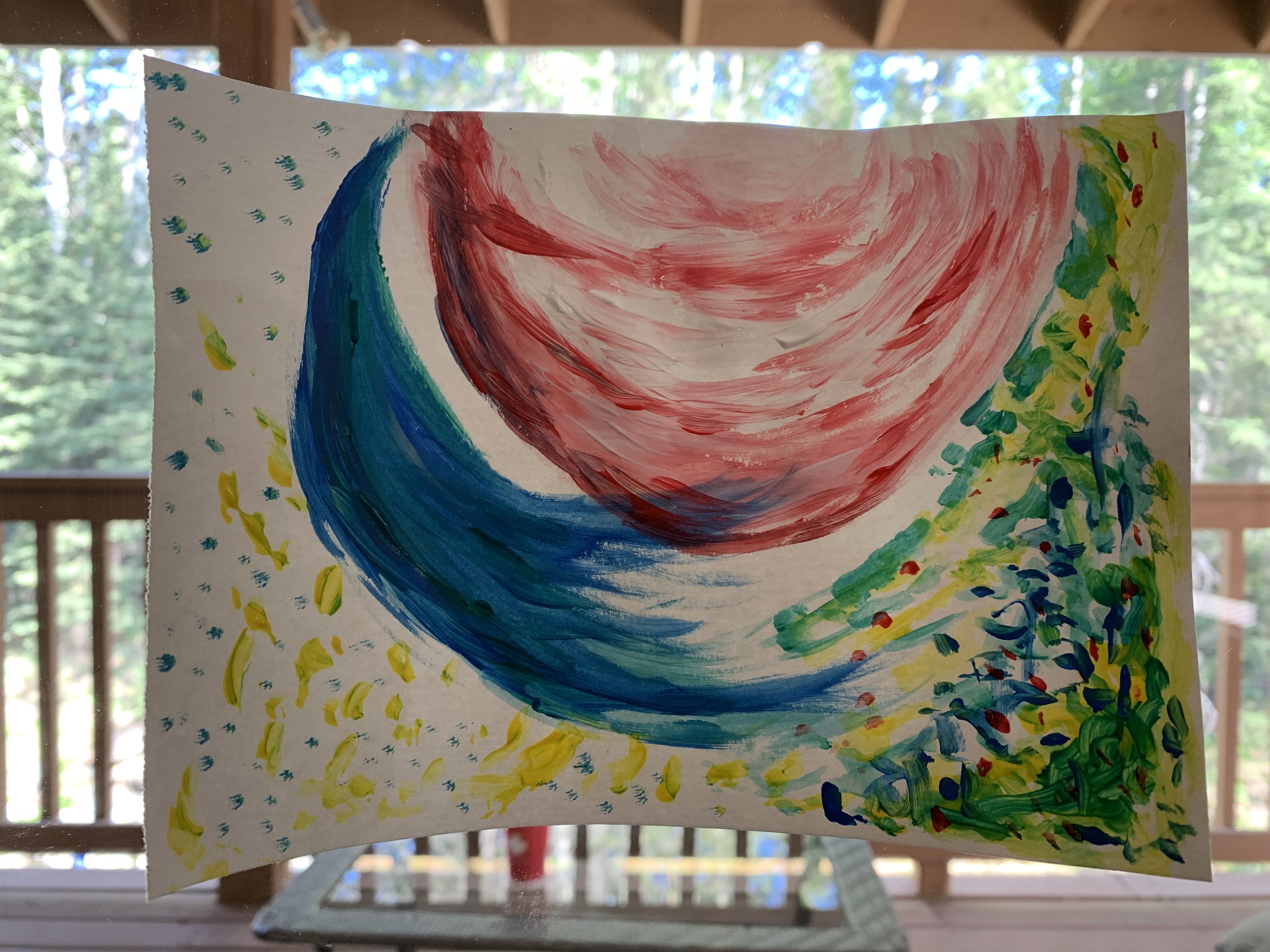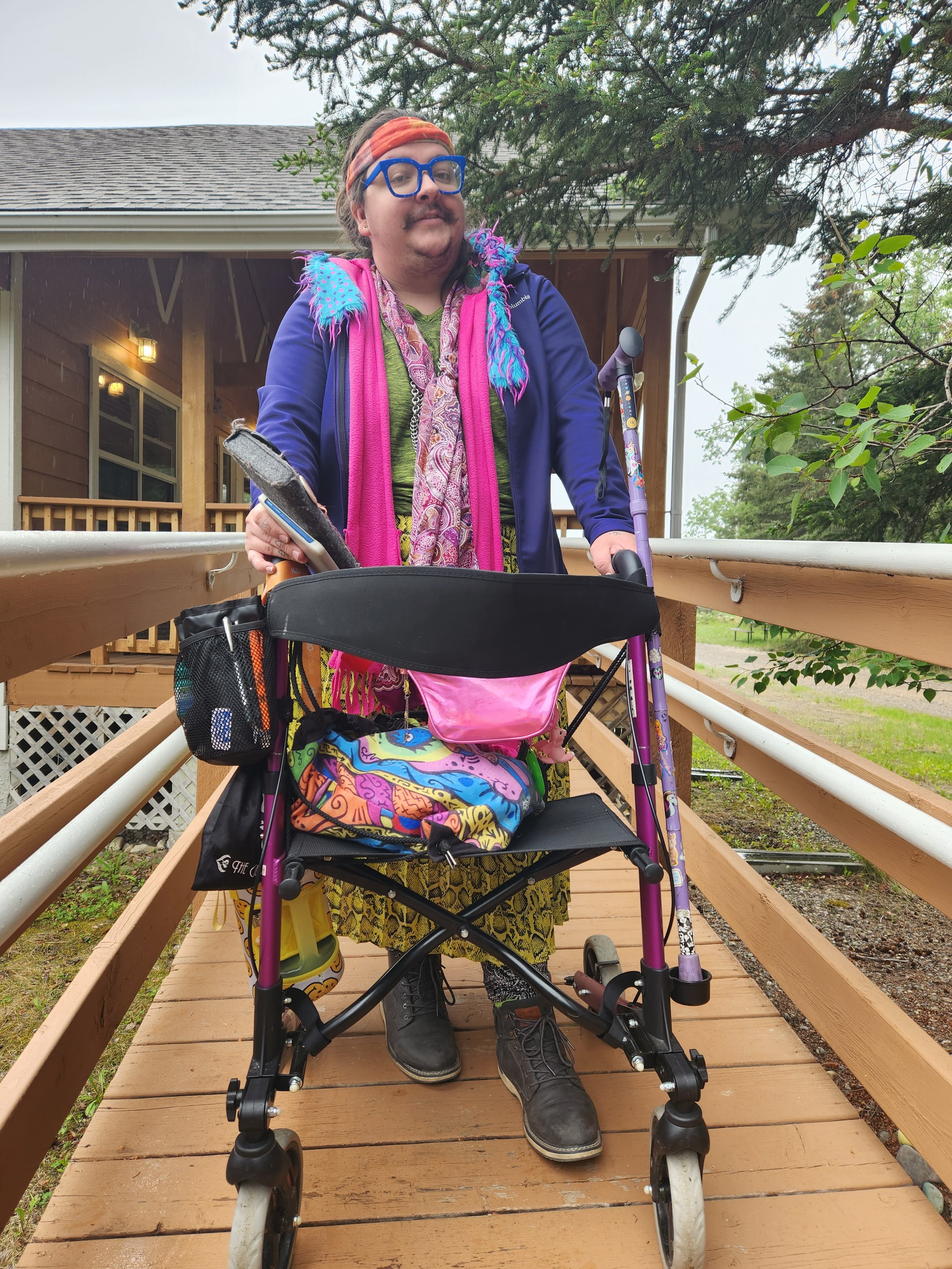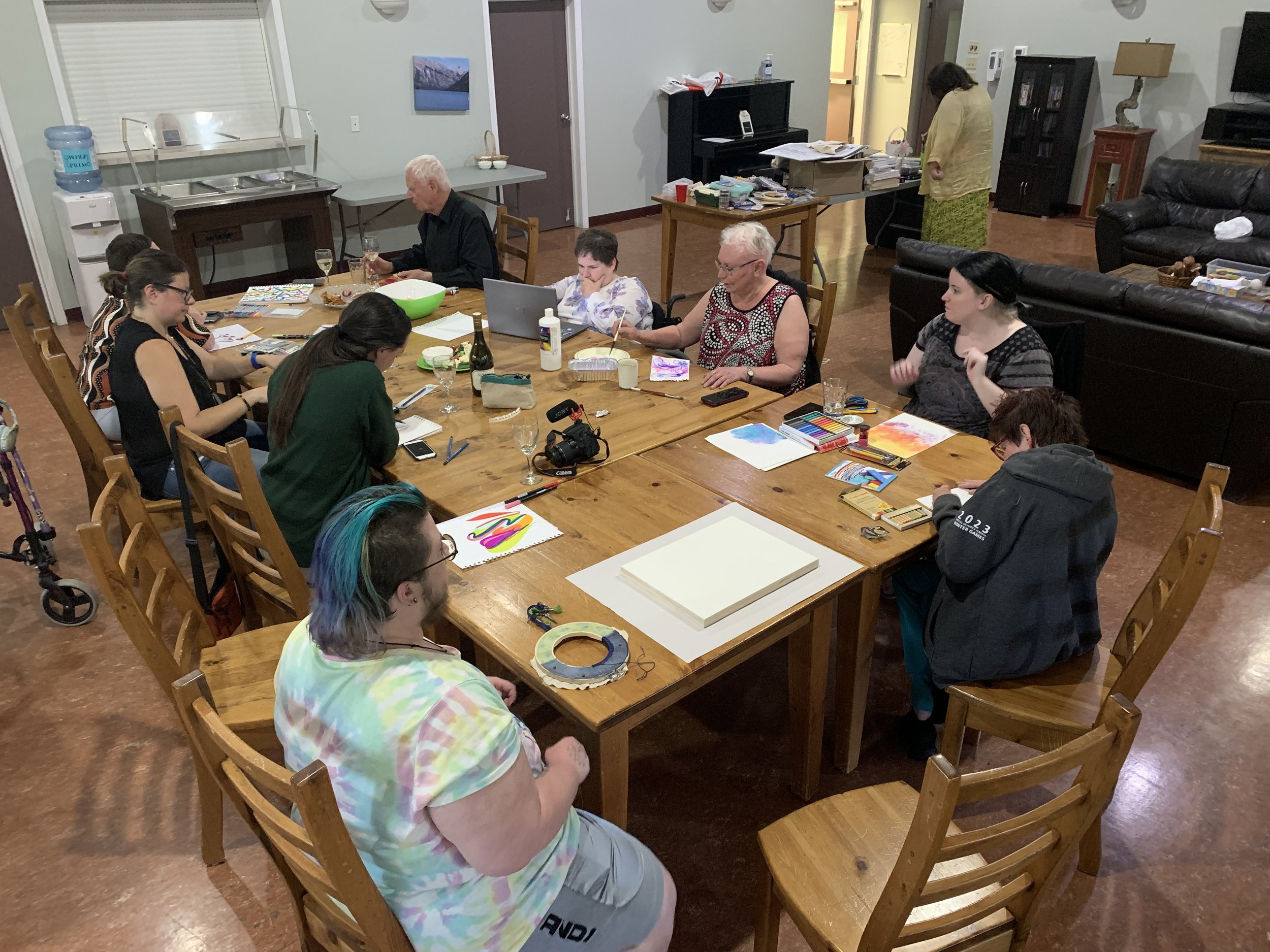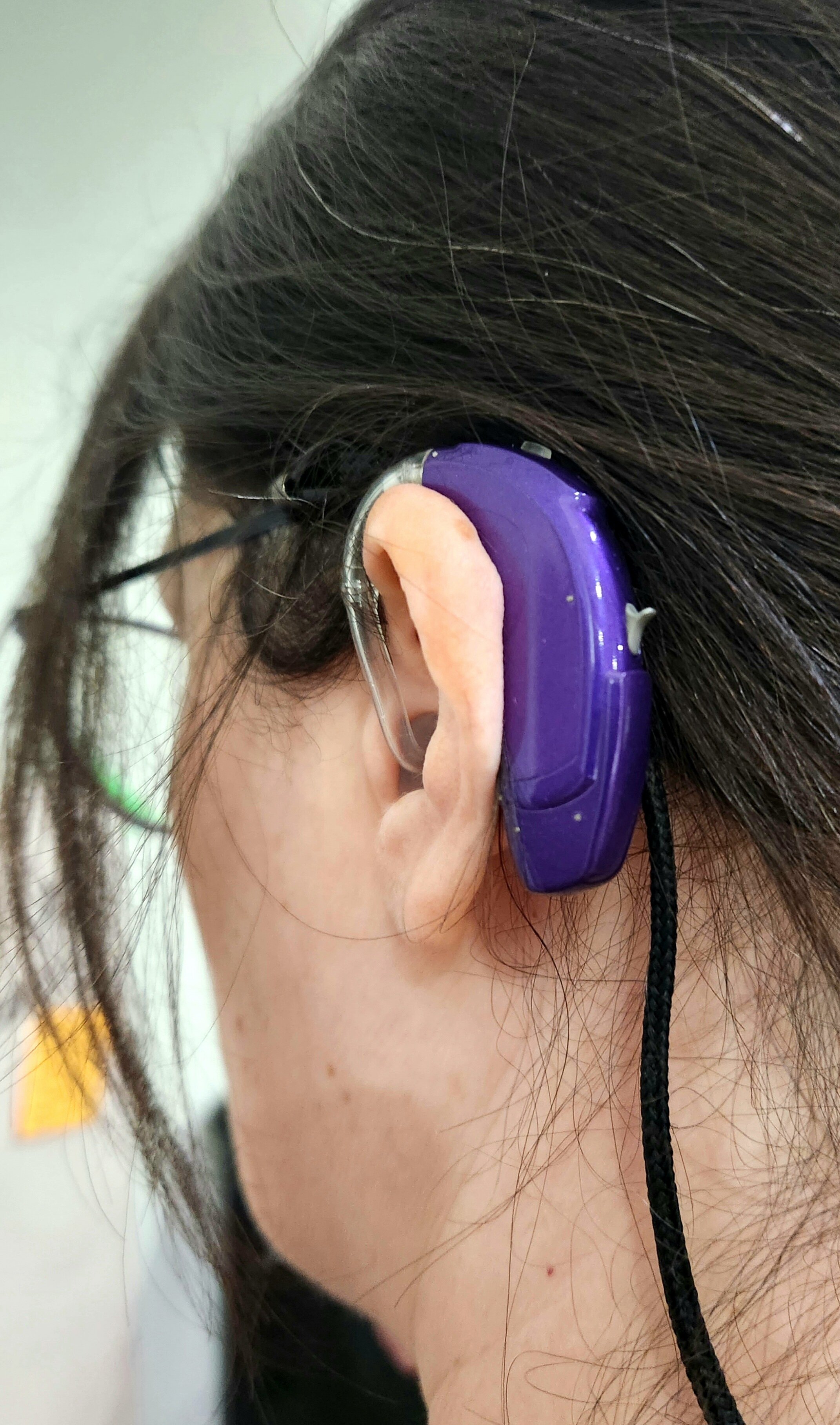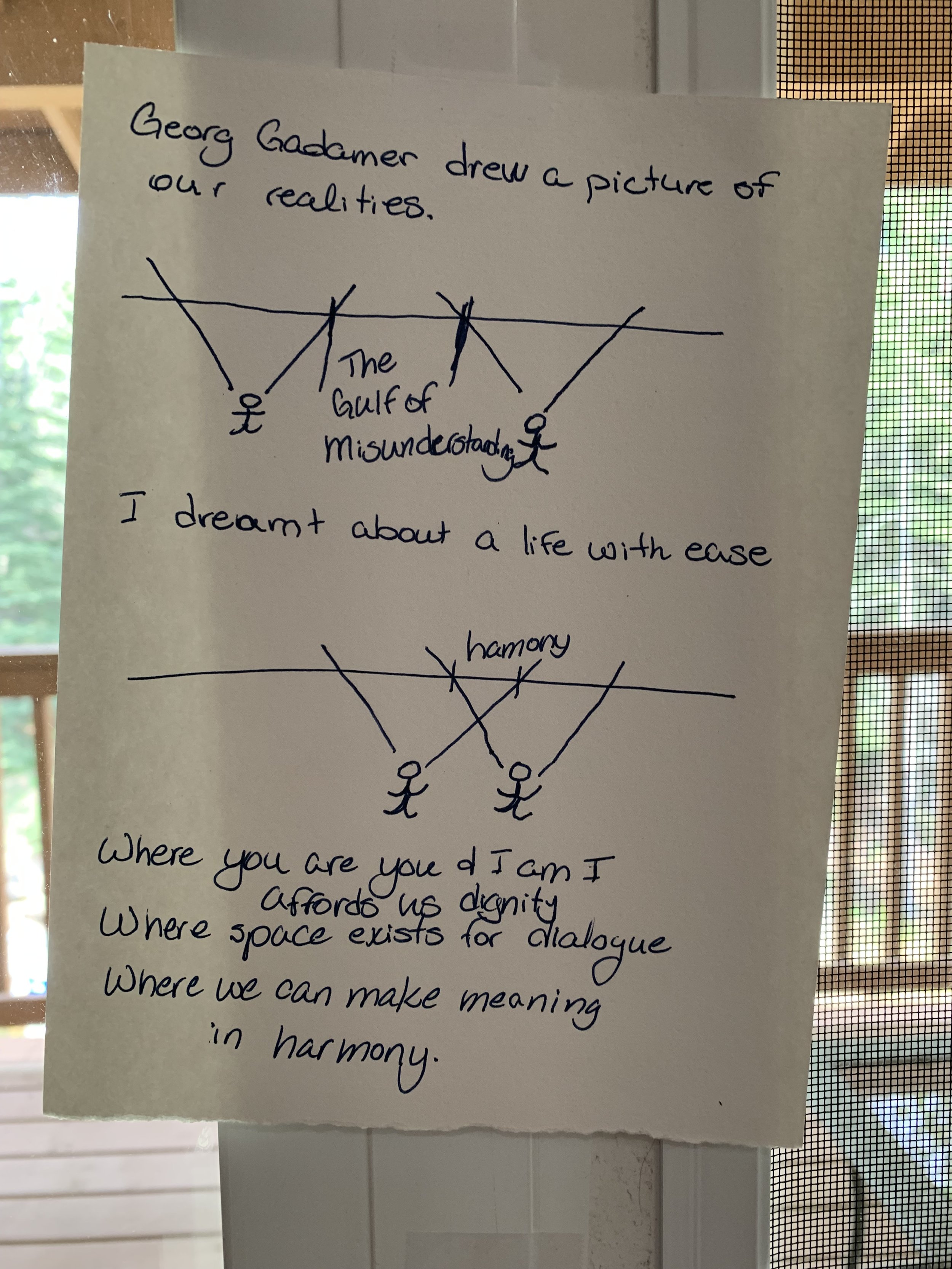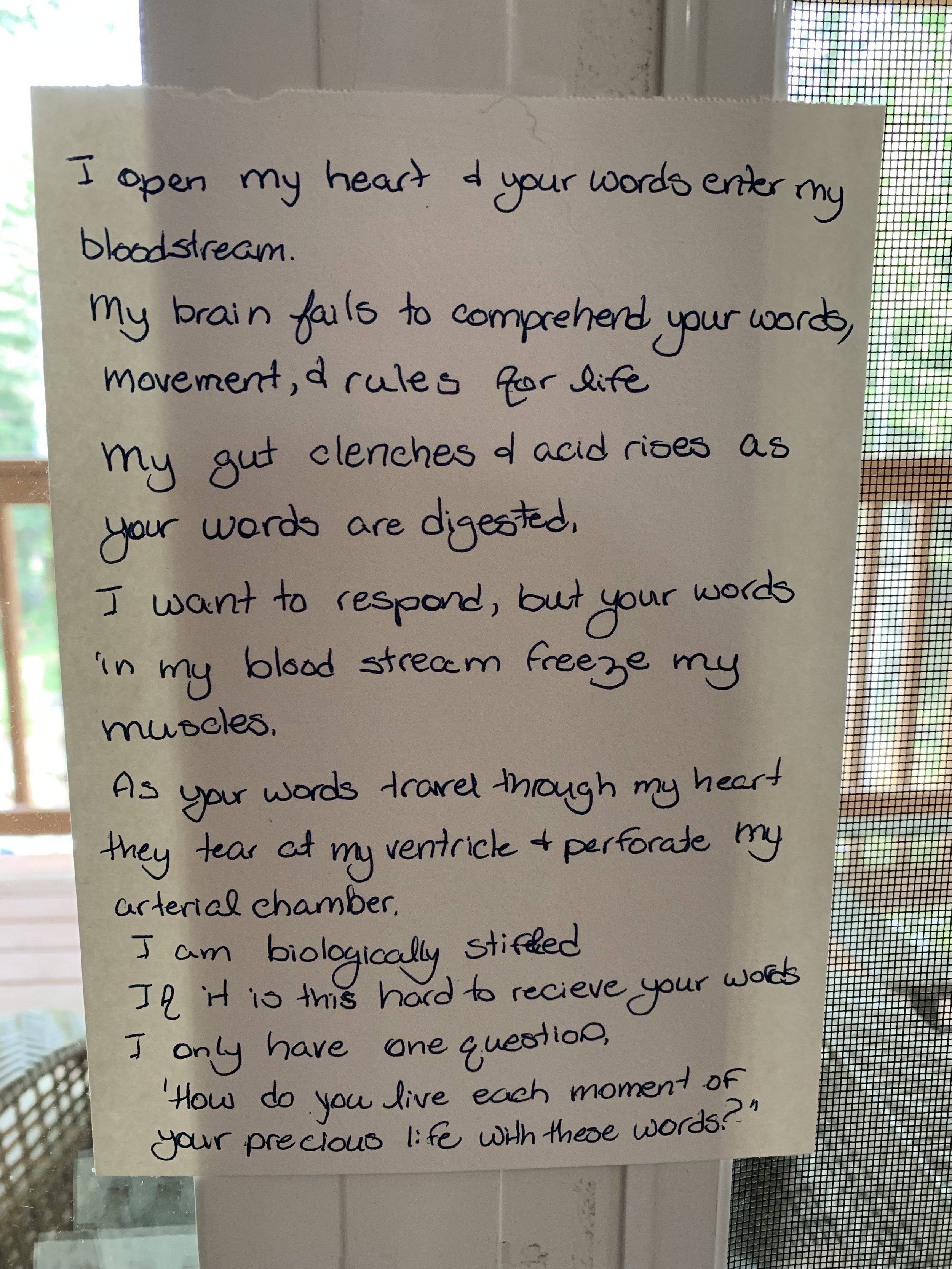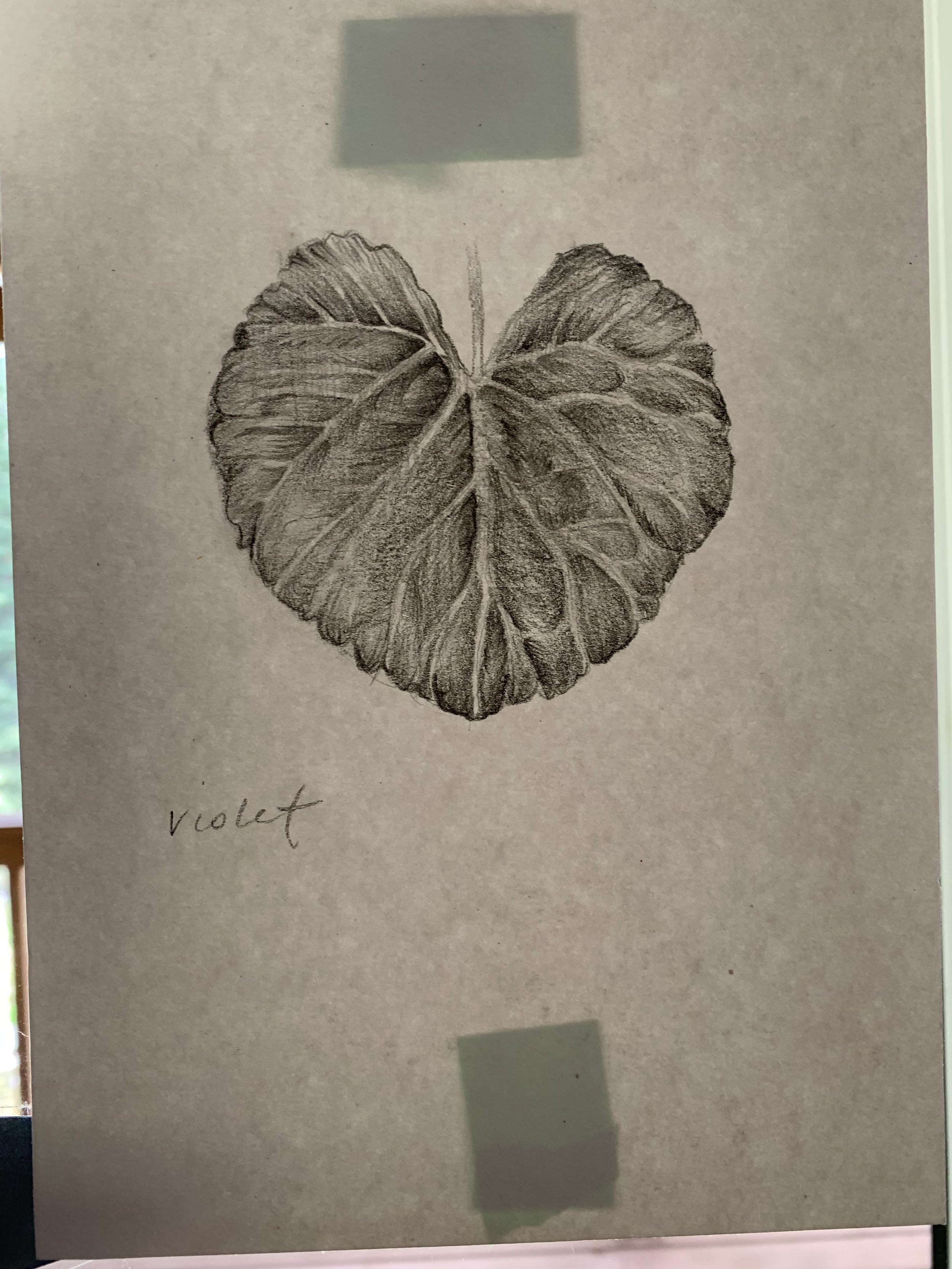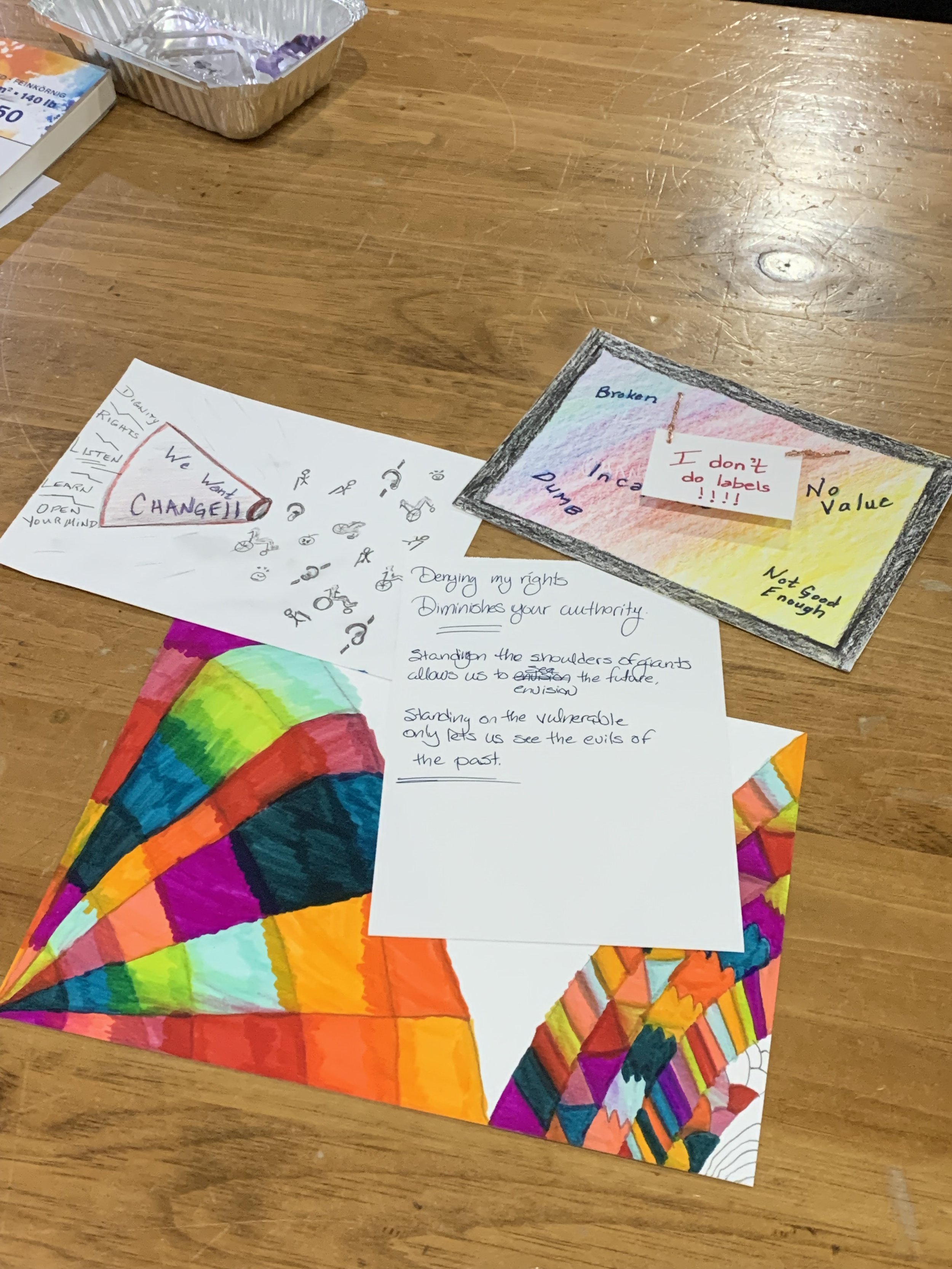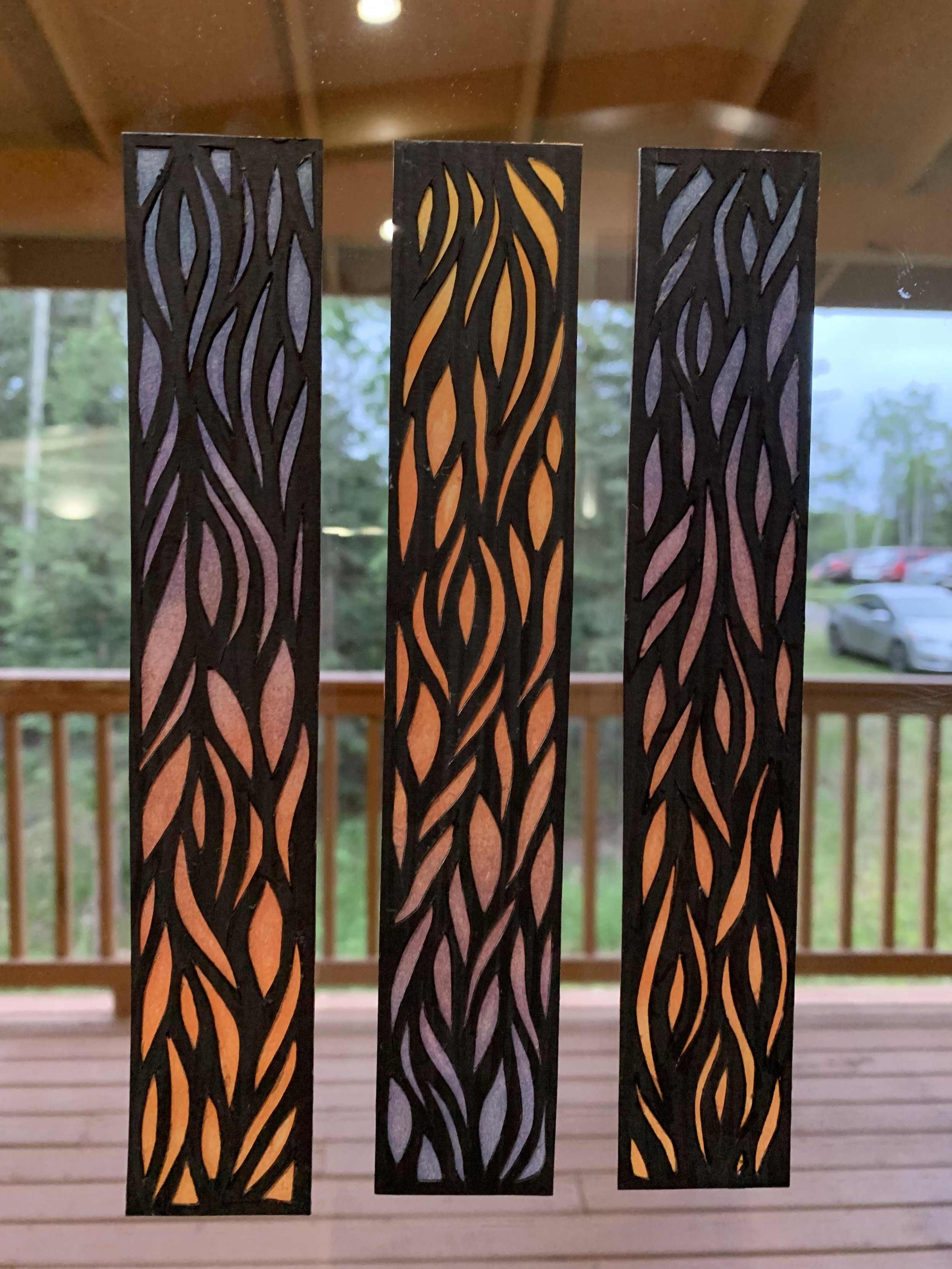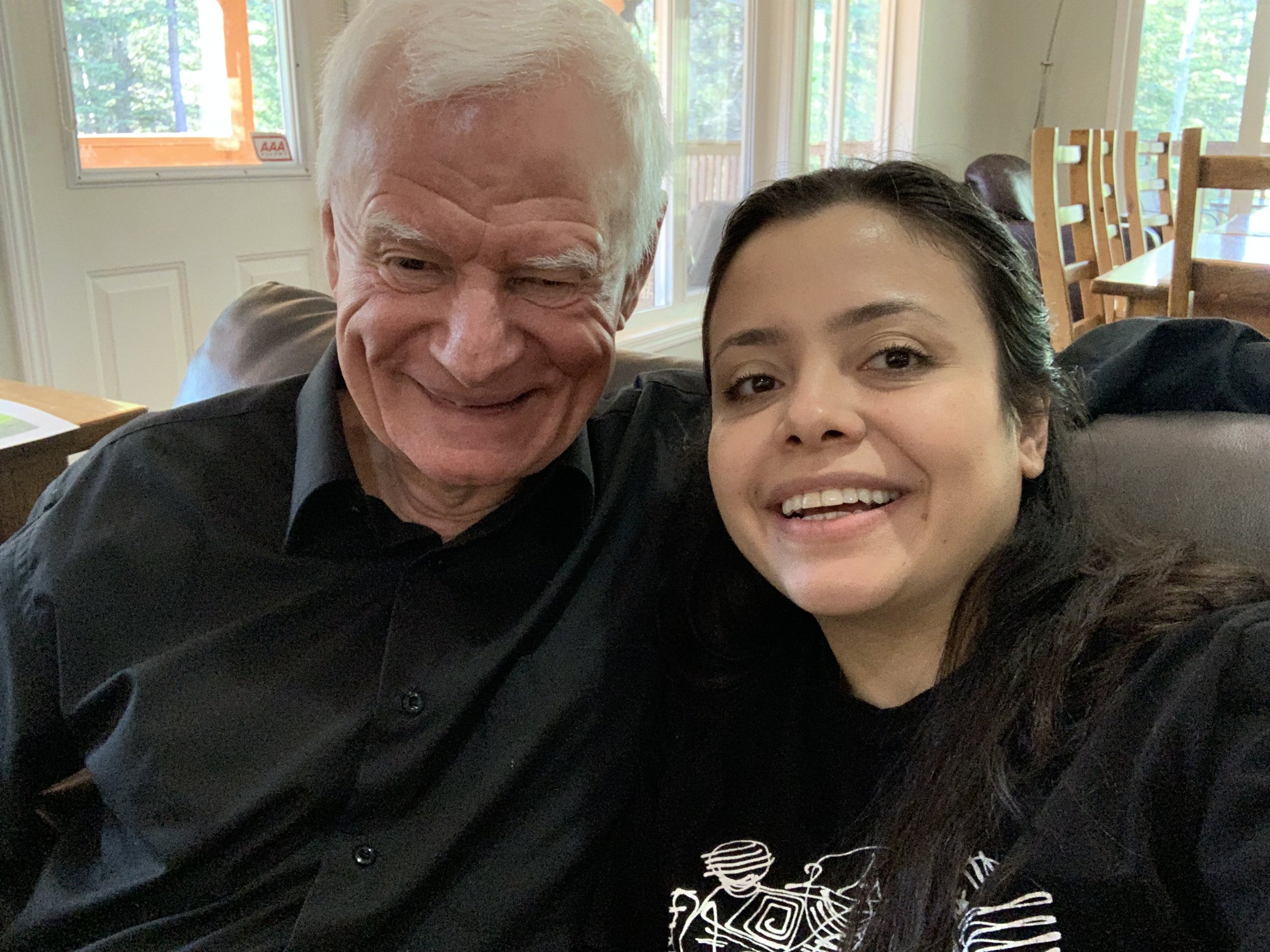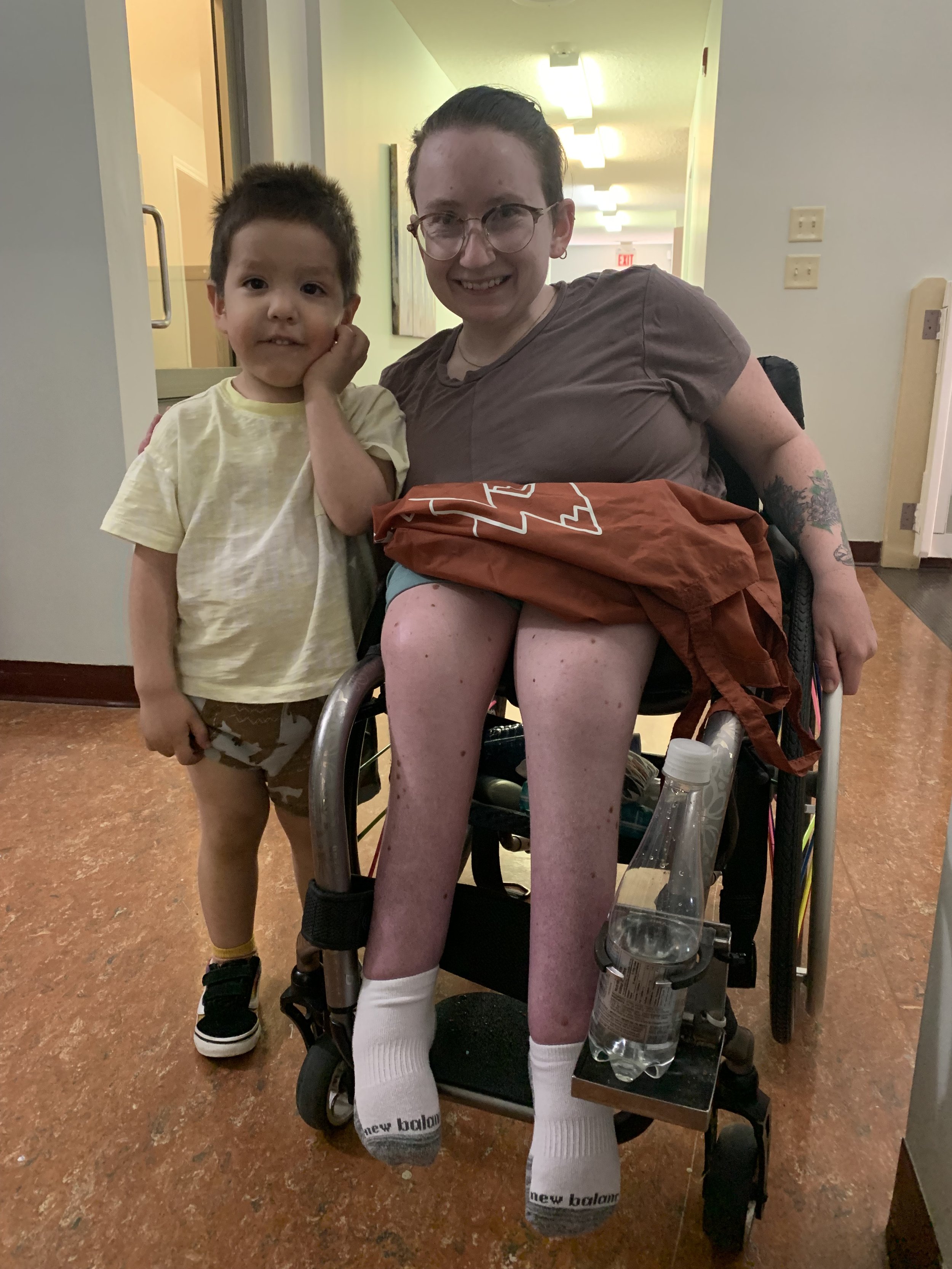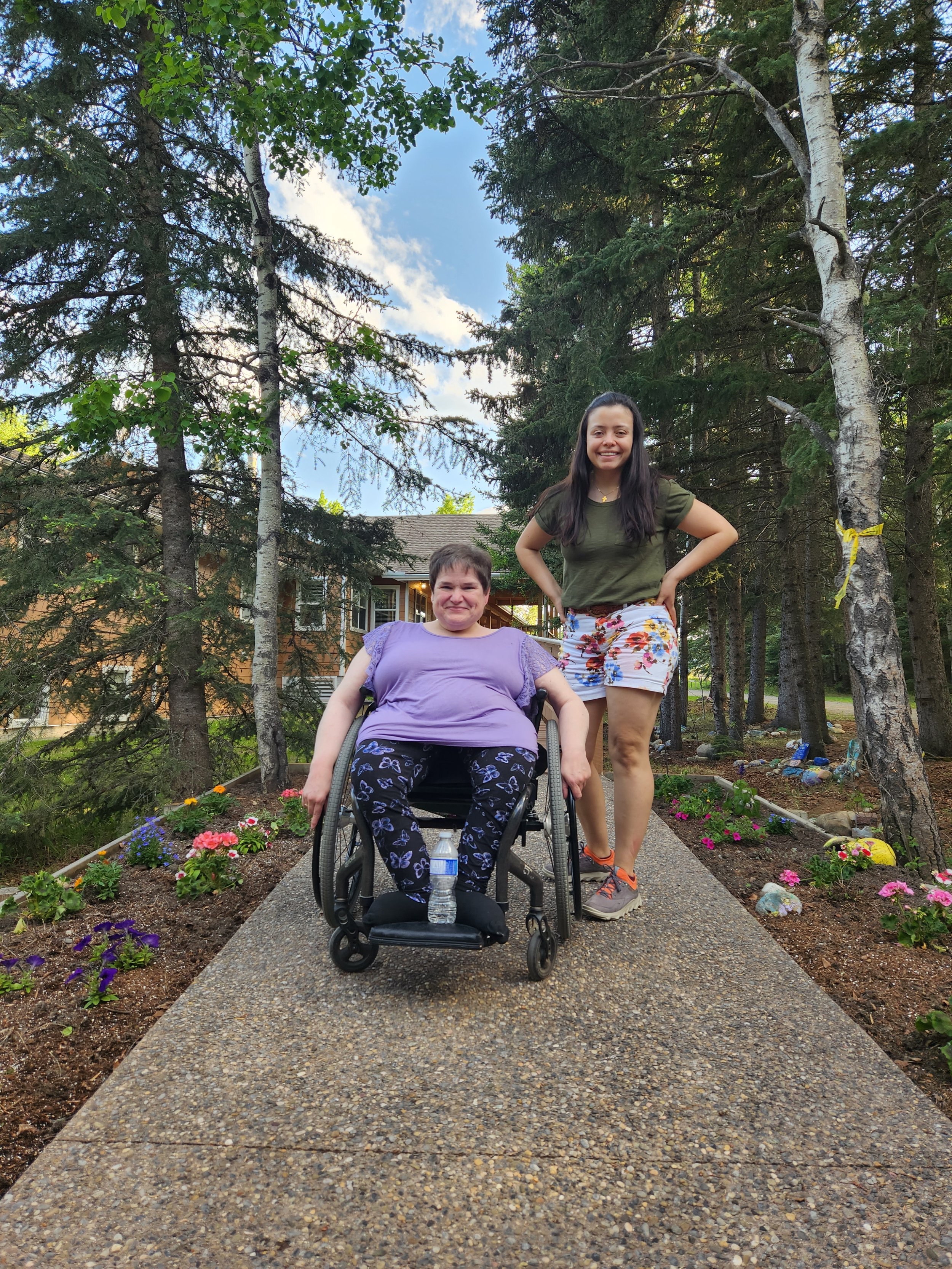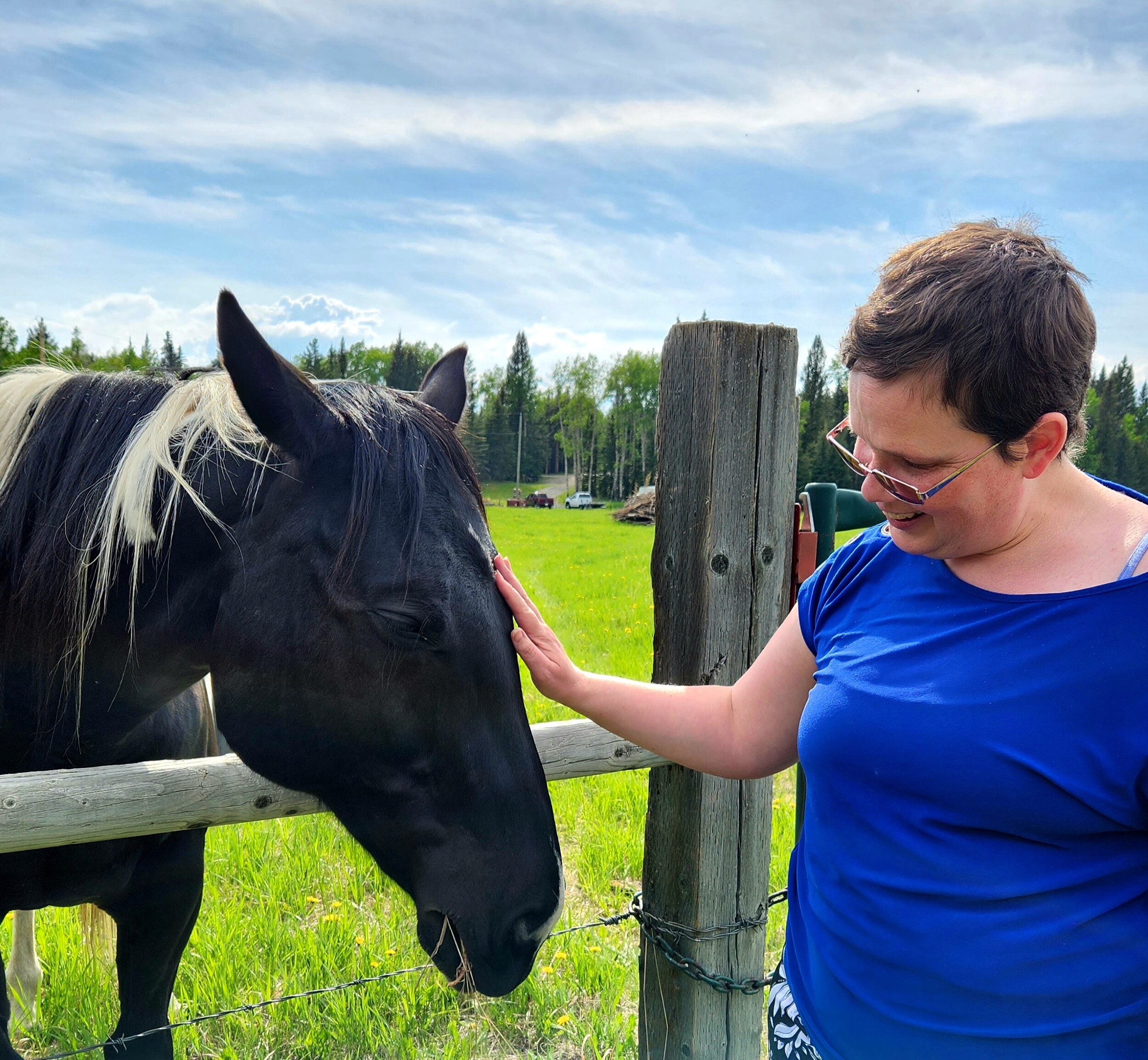Action on Ableism Retreat: A Journey of Inclusion, Art and Empowerment
The Action on Ableism Retreat, organized by the John Humphrey Centre for Peace and Human Rights during National AccessAbility Week and supported by the Government of Canada, proved to be a transformative and empowering experience for all involved. This blog post brings together the perspectives of facilitators, project coordinators and participants, offering a glimpse into the emotions, connections, and learning that took place during this significant event. From battling performance anxiety, taking action against ableism, to embracing accessibility, the retreat aimed to create a safe and inclusive space for individuals with disabilities to explore their creative potential to advance dignity, accessibility and disability rights.
Facilitator's Perspective:
Lead facilitator, Donna Bulger, shares her emotional journey, from initial anxieties about taking the lead to feeling inspired upon arriving at the URSA retreat site. Regular virtual planning sessions fostered a sense of camaraderie, which continued to grow during the face-to-face connections at the retreat. The use of a circle format allowed for open reflection and discussion, promoting trust and safe expression.
“As a facilitator who has lived with a disability all of my life, I was impressed when the day to day plan for the retreat included personal time. My overall impression was that our artists also appreciated this time being built in for them. Creative expression and exploration is so personal and individual - it was lovely to do that in our own time and in our own way. Facilitators recognized these very diverse ways to create and pivoted daily plans as necessary.” Donna Bulger
One of the most significant outcomes was the profound relationships that formed during the retreat, fostering a supportive community for individuals with disabilities; they laughed with one another over similar stories and realized that they are not alone in the feelings they have against ableism and the necessary action and education for the community at large.
Support staff, Jessica’s reflections:
As a project coordinator, facilitator and someone with family members facing mobility challenges, Jessica found the retreat to be a deeply meaningful experience. She felt responsible for ensuring accessibility and support for all attendees and valued the trust placed in her. The retreat opened her eyes to the issues of accessibility, and she now sees the world through a more accessibility-focused lens. She learned, “those with disabilities seek to be a part of the world they live in, to have connection, and to be understood without having to share their story or validate themselves or their disability.” Jessica felt such validation and camaraderie with everyone there, and enjoyed hearing the conversations, laughter, the stories, and the beautiful artwork that emerged in such a natural, restful setting. “Watching folks go for walks, connect with the land, with nature, and getting the chance to move at their own pace and find time for themselves to rest, was so very gratifying.” Jessica emphasized the importance of amplifying their voices and fostering inclusivity.
Participant's Perspective (Louie Fermor):
Louie Fermor, an artist, shares their perspective on the Action on Ableism Retreat. They express feeling genuinely accommodated and cared for during the program, something they had rarely experienced at other creative residencies. The facilitators' dedication to creating a disability-friendly environment, grounded in disability rights’ values, made the retreat a safe space for artists to be themselves and celebrate their talents: “the retreat embodied many of the values of the disability rights community such as crip time, self determination, and open-hearted sharing. Because such a grounded, calm, and fun environment was facilitated, the artists were able to not only be themselves but celebrate themselves.” Louie's experience has empowered them to confidently ask for their access requirements in future events.
The Action on Ableism Retreat was an inspiring journey of inclusion and empowerment. The facilitators' commitment to accessibility and fostering a safe and open environment allowed participants to embrace their creativity and build meaningful connections. It served as a reminder of the importance of accommodating diverse needs and amplifying the voices of those with disabilities. The success of the retreat stands as a testament to the potential for positive change when we truly listen, understand, and celebrate the unique perspectives and talents of every individual.

